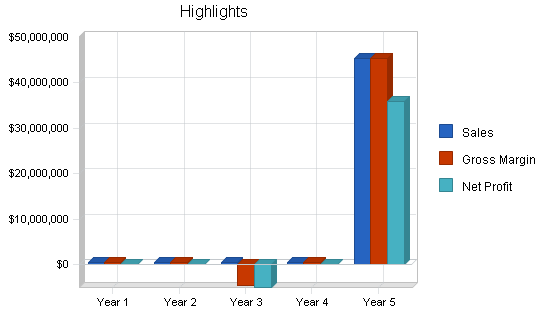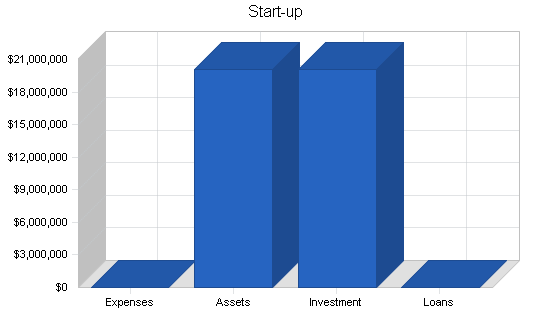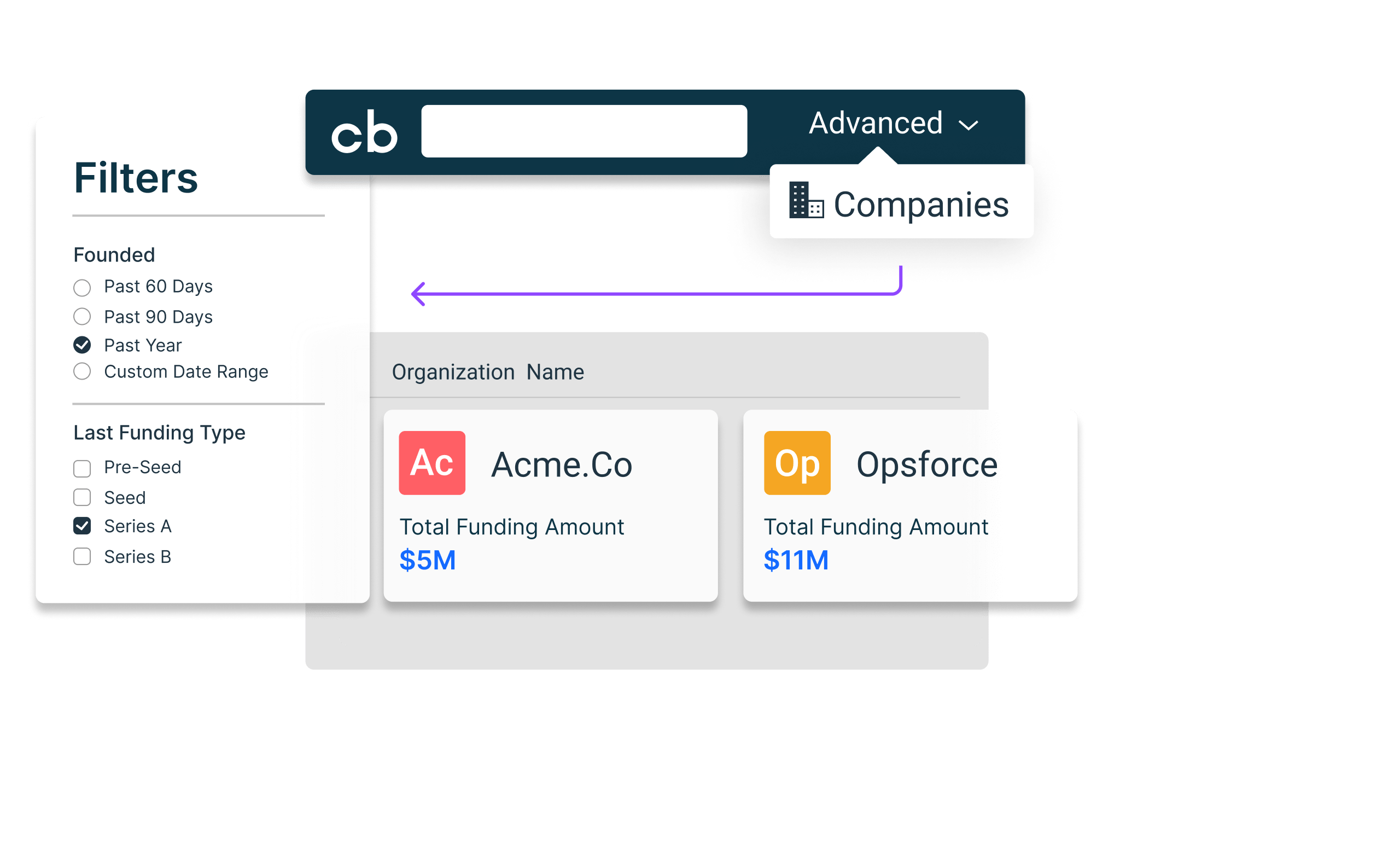Your 10 Step Guide to Building a Real Estate Investing Business Plan
Real estate empires grow from a blueprint, not last-minute hunches. This guide outlines how to create a real estate investing business plan to help you navigate market dynamics, seek funding, and add to your team so that you can successfully grow your business.
Let’s be honest, the idea of drafting a formal real estate investing business plan probably doesn’t excite you. After all, you got into real estate investing to scout deals and transform properties, not write novels full of financial projections.
But experienced investors know a solid plan spells the difference between profitability and major headaches. It forces clarity on direction and feasibility before you sink hundreds of thousands into property purchases and rehabs.
Think of your business plan as a blueprint for success tailored to your unique investment goals and market conditions. Whether you currently own a few rentals or are launching a full-fledged development firm, a plan guides decisions, aligns partners, and demonstrates viability to secure financing.
So how do you build one effectively without needless complexity? What key strategy areas require your focus? Let’s explore components that set you up for growth while avoiding common first-timer pitfalls. With realistic planning as your foundation, your investing journey can start smooth and stay the course.

What is a real estate investing business plan?
At its core, a real estate investment business plan is simply a strategic guide outlining your intended real estate approach. It defines target markets, preferred project types based on expertise, capital sources, growth strategy, key operational procedures, and other investment specifics tailored to your situation.
View your plan as an evolving document rather than a rigid static rulebook collecting dust. It should provide goalposts and guardrails as markets shift over time and new opportunities appear. You'll be able to refer back to the plan to confirm that these new opportunities align with proven tactics that yield predictable returns.
Detailed upfront planning provides a sound foundation for confident direction. It protects stakeholders by identifying potential pitfalls and mitigation strategies before costly surprises trip up the stability of your real estate business.
So, it's worth it to take the time and develop a customized plan aligned to your niche, resources, and risk tolerance. While initially tedious, the practice of putting together your strategic real estate business plan ultimately provides clarity and confidence moving forward.
Importance of having a business plan
Now that we’ve defined what a business plan is, let’s explore why having one matters — especially if you want to grow a successful real estate investment company.
Have you considered what originally attracted you to investing in properties? Whether it was rehabbing flips, acquiring rentals, or simply a lucrative hobby, your motivations and ideal path can get lost in the daily distractions of life. That’s where an intentional business plan provides clarity and conviction moving forward.
Reasons every real estate investor should prioritize planning are:
- Goals and vision : You might be wanting to quit your day job and focus on real estate full time, or you might simply want to generate some extra income on the side. Either way, a business plan forces you to define what success looks like for you.
- Due diligence : Creating a plan forces you to research the real estate markets you want to invest in — analyzing sales, rents, permits, zoning, demographics, and growth projections. This helps you objectively identify high-potential neighborhoods and properties rather than relying on hearsay or intuition.
- Funding and financing : Lenders and potential investors will want to review your business plan to evaluate the viability and profitability of your real estate investment business before offering any financing . A complete plan builds credibility and confidence with stakeholders.
- Guide decision-making : It's easy to get distracted by the latest real estate seminar or shiny new construction techniques. But sticking to the parameters and strategies laid out in your plan prevents you from making hasty changes or going down rabbit holes.
- Identify potential risks : There are always things that can unexpectedly go wrong: what if interest rates spike and make your loans unaffordable, or your best tenants move out and unreliable folks move in? Brainstorming these scenarios in advance allows you to minimize risks and have contingency plans.
- Systemize operations : As you grow, how will you scale operations? A business plan helps you identify areas that will require attention as your business evolves, like creating maintenance checklists for rentals, standardizing lease agreements , or automating accounting procedures.
- Build the right team : Your business plan provides guidance on the team you'll need for your business. Know if you require a real estate agent to help you find deals or a property manager to handle tenant complaints at 2 AM.
- Track progress : Your plan helps you compare things like actual rehab costs, rental occupancy rates, cash flow, etc. to your initial projections and determine whether you're on track. You can then make adjustments as needed.
- Maintain strategy : As you scale your operations with new hires or partnerships, you'll want to maintain direction in alignment with your original business plan. For example, if you are considering new verticals like commercial real estate, does evaluation criteria match your proven risk metrics and return hurdles? A real estate business plan keeps everyone focused on the same goals as your business grows.
What to include in a real estate investment business plan
A good real estate investing business plan covers everything from business goals to financing strategy. Here are the ten key elements you should include:
1. Executive summary
The executive summary provides a high-level overview of your real estate investment business plan. It briefly describes your company mission, objectives, competitive advantages, growth strategies, team strengths, and financial outlook.
Think of it as the elevator pitch for your business plan, and write it last after you have completed the full plan. Limit it to 1-2 pages at most.
Make your executive summary compelling and motivate investors or lenders to learn more. Be sure to also summarize your past successes and experiences to build credibility.
2. Company description
The company description section provides background details on your real estate investment company. Keep this section brief, but use it to legitimize your business and team.
- Business model : Explain your core business model and investment strategies. Will you primarily flip properties, buy and hold rentals, conduct wholesale deals, or use another approach?
- Company history and achievements : Provide a brief timeline of your company's history, including its formation, past projects, key milestones, and achievements.
- Legal business structure : Identify your corporate structure, such as LLC , S-Corp , C-Corp, or sole proprietorship.
- Office location : Provide your company's office address, which lends you credibility. If you are initially working from home, consider establishing a local PO Box or virtual address.
- Founders and key team members : Introduce your founders and key team members. Highlight relevant real estate, finance, management expertise, and credentials.
- Past projects : Provide an overview of any successful prior real estate projects your company or founders have executed.
- Competitive advantages : Explain unique resources, systems, or other strengths that give your company an edge over competitors. These could be proprietary analytic models, contractor relationships, deal access, or specialized expertise.
- Technologies and tools : Discuss technologies, software programs, or tools your company uses to streamline processes and optimize operations.
3. Market analysis
The market analysis section validates whether your real estate investment strategy makes sense in a given area.
Conduct detailed research from multiple sources to create realistic real estate investment market projections and identify potentially profitable opportunities.
Outline why certain neighborhoods, property types, or price points pique your interest more than others.
Your market analysis should dig deep into factors like:
- Local sales and rental price trends : Analyze pricing history and current trends for both sales and rents. Look at different property types, sizes, and neighborhoods.
- Housing inventory and demand analysis : Research the balance of supply and demand and how that impacts prices. Is the market undersupplied or oversupplied?
- Market growth projections : Review forecasts from real estate analysts on expected market growth or decline in coming years. Incorporate these projections into your analysis.
- Competitor analysis : Identify other real estate investors actively acquiring or managing properties in your target areas. Look at their business models and strategies.
- Target neighborhood and property analysis : Provide an in-depth analysis of your chosen neighborhoods and target property types. Outline positive attributes, risks, and opportunities.
- Demographic analysis : Analyze the demographics of potential tenants or homebuyers for your target properties. Factors like income, age, and family size impact demand.
- Local construction and renovation costs : Research materials and labor costs for accurate budgets and understand the permitting process and timelines.
- Regional economic outlook : Factor in projections for job growth, new employers, infrastructure projects, and how they may impact the real estate market.
4. SWOT analysis
SWOT stands for strengths, weaknesses, opportunities and threats. Conducting a SWOT analysis means stepping back from day-to-day business to assess your broader position and path from a strategic lens.
Internal strengths for your real estate investment business may include an experienced team skilled in major rehab projects, strong contractor relationships, or access to private lending capital. Weaknesses might be limited staff for handling tenant maintenance issues across a growing rental portfolio or only having a small number of referral partners for deal flow.
External opportunities can come from accelerating population growth and development in your target market, new zoning favorable to multifamily housing, or record-low mortgage interest rates. Threats could be rising material prices that hurt your flip margins, laws imposing restrictions on non-primary residence owners, or an oversupply of new luxury rentals, allowing tenants to be choosy.
The SWOT analysis highlights strengths to double down on and risks to mitigate in the real estate market.
5. Financial projections
The financial plan helps for both internal preparation and attracting investors. For real estate companies, the financial plan section should cover:
- Startup costs : Include the expected startup costs involved to start your investment project, such as getting licenses and permits or paying for legal fees.
- Profit and loss forecasts : Create projected profit and loss statements that outline what you think your revenues and expenses will be over the next 3-5 years.
- Cash flow projections : Put together projected cash flow statements that show expected cash flow for each month.
- Return on investment projections : Project your company's expected ROI over time under the different investment scenarios.
- Funding requirements : Based on your forecasts, detail exactly how much capital you will need to start and operate your business until it is profitable. Specify whether you plan to use debt or equity financing.
6. Investment strategy
The investment strategy outlines your niche — will you focus on flipping, buying rentals, commercial properties, or a blend? Define any geographic targets like certain cities or zip codes backed by your research on growth potential.
Specify your criteria for ideal investment properties based on your goals. Decide which factors — age, size, layout, condition, or price point — matter most to you.
You can also use this section to explain how you plan to find deals, whether that's by scouting listed properties, attending foreclosure auctions, or networking to create off-market opportunities.
Clearly conveying your approach allows lenders and potential private investors to grasp your niche, planned pursuits, and process for finding deals. Having a strong strategy that summarizes how you locate, evaluate and capture deals matching your investing thesis can increase lender and private investor confidence in your ability to execute.
7. Marketing plan
Real estate marketing can’t just be an afterthought; it helps attract profitable deals, financing, and tenants to your business, making it a necessary component of your business plan to prioritize.
Components of your marketing plan can include:
- Networking: Actively networking at local real estate meetups puts you directly in front of promising off-market opportunities and partnerships with motivated sellers, lenders and contractors in your community.
- Social media: Consistently nurturing your social media presence can also pay off to help you find opportunities or potential investors.
- Direct marketing: Never underestimate old school direct marketing — sending postcards to addresses with outdated “We Buy Houses” signs or calling the For Sale by Owners numbers from public listings can help you reach motivated sellers.
- Listings management: Note that marketing does not end once you own property. To keep rental vacancies filled, leverage listing sites that can publish your units to a wide audience of prospective tenants.
8. Operations plan
Without systems, real estate investors struggle through renovations plagued by cost overruns, shoddy contractors who never call back, and frustrating tenants who always pay late . The operations component of your plan should consider aspects like:
- Renovations: Ever lined up a contractor who juggles too many clients and leaves your projects languishing? Create standardized processes for accurate scoping, vetting subs, enforcing deadlines contractually, and maintaining contingency funds.
- Business technologies: As your portfolio grows, tasks like tracking income, expenses , assets, and communicating with tenants can quickly overwhelm. Identify technologies early on that help centralize details to avoid getting swamped. Look into property management platforms that automate listings, tenant screening , digitized lease agreements, maintenance work order flows, and communications.
- Insurance: Tenants or contractors can sometimes damage assets. Discuss landlord insurance policies to protect you against lawsuits, natural disasters, and major property repairs as you scale up.
9. Team structure
If you plan to grow your team beyond just yourself or a few partners, your business plan should outline your organization's key roles and responsibilities. This helps you consider what positions you may need to fill as your company scales.
- Partners or co-founders: These are the main decision-makers and equity holders. Outline their background, skills, and the value they bring.
- Property manager: This person handles day-to-day management of properties, tenants and maintenance issues.
- Bookkeeper: You may need daily help managing bank accounts, invoices, taxes, and financial reporting.
- Contractors and project managers : You'll need trusted renovations, repairs, and landscaping contractors. Dedicated project managers help oversee large jobs.
- Leasing agents : As you grow and add more properties, leasing agents handle showings, applications, and signing new tenants.
- Real estate attorneys : Real estate investing requires proper legal filings and compliance. Attorneys can help you manage this risk.
10. Exit strategies
Every wise investor plans their exit strategy upfront before acquiring a property. Will you aim to flip the asset quickly or retain it as a rental long-term? What factors determine ideal timing and the right profit margin for you to walk away?
Build flexibility into your strategy, as markets move in unpredictable ways. Especially with flips, have contingency plans if your listing gets lowballs or no offers. Be willing to rent short-term, refinance and hold if possible, convert to condos, or just patiently wait until the market changes. Having reserves and backup options allows you to avoid a distress sale.
Also include plans for strategies after a property sale, like a 1031 exchange to defer capital gains taxes and reinvest in another property. You may want to use sale proceeds to reduce or clear outstanding debts, enhancing cash flow and financial standing.
Tips for your real estate business plan
Now that you know what to include, consider the following four tips to help your real estate investment business plan stand out.
1. Be detailed and specific
Resist the urge to gloss over details as you put together your plan. Drill down on the specifics for parameters like:
- Target purchase and rehab costs.
- Timelines for completing projects.
- Minimum profit margins.
- Maximum allowable vacancy rates .
- Minimum cash reserves.
2. Refine and update regularly
Markets change, so don't create your business plan and file it away. Review your plan regularly to see how market conditions and your actual results compare to projections.
Make adjustments as needed. Tweak your approach if your rehabs are going over budget or your properties aren't selling as quickly as expected.
Aim to update your full plan annually at a minimum. Even if your overall strategy remains consistent, refresh the details around market factors, financials, tactics, risks, and projections.
3. Seek expert feedback
Before implementing your new real estate investment business plan, seek feedback from advisors who can identify potential issues or weaknesses.
Ask experienced real estate investors in your area to review your plan and provide constructive input. It's also a good idea to share your plan and numbers with your CPA and legal counsel as well.
4. Keep it simple
While specificity is good, don't over complicate your business plan to the point where it becomes difficult to follow. You want to inform readers without confusing them.
The goal is for stakeholders, such as co-investors, lenders, and partners, to easily digest your plan and understand it after a quick skim. Make it easy for readers to grasp your reasons behind focusing on a given area or project type based on market conditions and opportunity.
A property investment business plan fit to your goals
After finally finishing your business plan, you’re probably eager to dive into tangible investments rather than tweaking spreadsheets. But in the real estate industry, even experienced investors periodically step back and update strategies.
Approach your business plan as a living document that evolves as the market shifts, as you create new partnerships, or when you need to make changes in strategy. Set reminders to revisit quarterly and confirm your activities of today still align with the vision from day one.
Solid planning is proven to improve outcomes in dynamic industries like real estate investing. Though preparation isn’t glamorous, it pays dividends. Thoughtfully constructing your playbook puts the odds of executing successfully in your favor.
With a solid blueprint backed by your research, you’re now ready to capture the best real estate investment opportunities.
Business plan real estate investor FAQs
How do i stay flexible and adapt my business plan to changes in the market.
To stay flexible, review your real estate investing business plan regularly and update it based on changes in market conditions, trends, and opportunities. If things change in the market, find ways to adapt your strategy. This can include your goals, target market, financing, and even your exit plans.
How do I know if my real estate investing business plan is effective?
You'll know your business plan is effective if you're meeting the key objectives and metrics you outlined. Let's say your plan called for you to purchase a certain number of properties and achieve a specific cash flow or rate of return. If you're falling short, you can use the plan to course-correct.
Are there any specific software or tools for creating a real estate investing business plan?
Azibo is a helpful software tool for creating real estate investing business plans. This comprehensive platform has templates and tools to build out key sections of your plan. Its robust accounting and financial capabilities help construct accurate statements and projections.
Incorporating Azibo's online rent collection allows you to model cash flows. By centralizing lease documents , accounting, and portfolio management, Azibo streamlines the process of putting together a strategically sound real estate business plan.
Important Note: This post is for informational and educational purposes only. It should not be taken as legal, accounting, or tax advice, nor should it be used as a substitute for such services. Always consult your own legal, accounting, or tax counsel before taking any action based on this information.

Nichole co-founded Gateway Private Equity Group, with a history of investments in single-family and multi-family properties, and now a specialization in hotel real estate investments. She is also the creator of NicsGuide.com, a blog dedicated to real estate investing.
Other related articles

Whether you’re a property owner, renter, property manager, or real estate agent, gain valuable insights, advice, and updates by joining our newsletter.
Latest posts
The landlord lien: key insights for renters and owners.
Understanding landlord liens is important for property owners to secure unpaid rent through the tenant's personal property. This guide explores the legal framework, benefits, and best practices, ensuring landlords and tenants navigate liens effectively.
Fair Credit Reporting Act: Details for Landlords and Tenants
Running credit checks on prospective tenants? As a landlord or renter, you should understand the Fair Credit Reporting Act and how it impacts the rental process. This article covers the key elements of this law and how it governs the use of credit information during the rental process. Both property owners and prospective tenants will discover how this regulation supports a fair rental experience for all parties involved.
Implied Warranty of Habitability: The Landlord and Tenant Handbook
Rental properties are meant to provide safe, livable housing, and the implied warranty of habitability helps ensure that that's the case. However, not every repair issue falls under this rule. Discover the key areas landlords must address, what lies outside the warranty's scope, and steps tenants can take if landlords fail to make necessary repairs to maintain rental habitability.

How to Start an Investment Company

Importantly, a critical step in starting your own investment firm is to complete your business plan. To help you out, you should download Growthink’s Ultimate Business Plan Template here .
Download our Ultimate Business Plan Template here
14 Steps To Start an Investment Company :
- Choose the Name for Your Investment Company
- Develop Your Investment Company Business Plan
- Choose the Legal Structure for Your Investment Company
- Secure Startup Funding for Your Investment Company (If Needed)
- Secure a Location for Your Business
- Register Your Investment Company with the IRS
- Open a Business Bank Account
- Get a Business Credit Card
- Get the Required Business Licenses and Permits
- Get Business Insurance for Your Investment Company
- Buy or Lease the Right Investment Company Equipment
- Develop Your Investment Company Marketing Materials
- Purchase and Setup the Software Needed to Run Your Investment Company
- Open for Business
1. Choose the Name for Your Investment Company
The first step to starting your own investment company is to choose your business name.
This is a very important choice since your company name is your brand and will last for the lifetime of your business. Ideally, you choose a name that is meaningful and memorable. Here are some tips for choosing a name for your own investment firm:
- Make sure the name is available . Check your desired name against trademark databases and your state’s list of registered business names to see if it’s available. Also check to see if a suitable domain name is available.
- Keep it simple . The best names are usually ones that are easy to remember, pronounce and spell.
- Think about marketing . Come up with a name that reflects the desired brand and/or focus of your reputable firm.
2. Develop Your Investment Company Business Plan
One of the most important steps in starting an investment firm is to develop your own investment company business plan . The process of creating your plan ensures that you fully understand your market and your business strategy. The plan also provides you with a roadmap to follow and if needed, to present to funding sources to raise capital for your business. Your business plan should include the following sections:
- Executive Summary – this section should summarize your entire business plan so readers can quickly understand the key details of your investment firm.
- Company Overview – this section tells the reader about the history of your investment firm and what type of investment company you operate. For example, are you a mutual fund, hedge fund, closed-end fund, or exchange-traded fund (ETF) investment company?
- Industry Analysis – here you will document key information about the investment industry. Conduct market research and document how big the industry is and what trends are affecting it.
- Customer Analysis – in this section, you will document who your ideal or target customers are and their demographics. For example, how old are they? Where do they live? What do they find important when purchasing products or services like the ones you will offer?
- Competitive Analysis – here you will document the key direct and indirect competitors you will face and how you will build competitive advantage.
- Marketing Plan – your marketing plan should address the 4Ps: Product, Price, Promotions and Place.
- Product : Determine and document what products/services you will offer
- Prices : Document the prices of your products/services
- Place : Where will your business be located and how will that location help you increase sales?
- Promotions : What promotional methods will you use to attract customers to your investment firm? For example, you might decide to use pay-per-click advertising, public relations, search engine optimization and/or social media marketing.
- Operations Plan – here you will determine the key processes you will need to run your day-to-day operations. You will also determine your staffing needs. Finally, in this section of your plan, you will create a projected growth timeline showing the milestones you hope to achieve in the coming years.
- Management Team – this section details the background of your company’s management members and their qualifications.
- Financial Plan – finally, the financial plan answers questions including the following:
- What startup costs will you incur?
- How will your investment firm make money?
- What are your projected sales and expenses for the next five years?
- Do you need to raise funding to launch your business?
Finish Your Business Plan Today!
3. choose the legal structure for your investment company.
Next you need to choose a business structure for your investment company and register it and your business name with the Secretary of State in each state where you operate your business. Below are the five most common business structures:
1) Sole proprietorship
A sole proprietorship is a legal entity in which the owner of the investment company and the business are the same legal person. The owner of a sole proprietorship is responsible for all debts and obligations of the business. There are no formalities required to establish a sole proprietorship, and it is easy to set up and operate. The main advantage of a sole proprietorship is that it is simple and inexpensive to establish. The main disadvantage is that the owner is liable for all debts and obligations of the business.
2) Partnerships
A partnership is a business structure that is popular among small businesses. It is an agreement between two or more people who want to start an investment company together. The partners share in the profits and losses of the business. The advantages of a partnership are that it is easy to set up, and the partners share in the profits and losses of the business. The disadvantages of a partnership are that the partners are jointly liable for the debts of the business, and disagreements between partners can be difficult to resolve.
3) Limited Liability Company (LLC)
A limited liability company, or LLC, is a type of business entity that provides limited liability to its owners. This means that the owners of an LLC are not personally responsible for the debts and liabilities of the business. The advantages of an LLC for an investment firm include flexibility in management, pass-through taxation (avoids double taxation as explained below), and limited personal liability. The disadvantages of an LLC include lack of availability in some states and self-employment taxes.
4) C Corporation
A C Corporation is a business entity that is separate from its owners. It has its own tax ID and can have shareholders. The main advantage of a C Corporation for an investment company is that it offers limited liability to its owners. This means that the owners are not personally responsible for the debts and liabilities of the business. The disadvantage is that C Corporations are subject to double taxation. This means that the corporation pays taxes on its profits, and the shareholders also pay taxes on their dividends.
5) S Corporation
An S Corporation is a type of corporation that provides its owners with limited liability protection and allows them to pass their business income through to their personal income tax returns, thus avoiding double taxation. There are several limitations on S Corporations including the number of shareholders they can have among others.
Once you register your investment company, your state will send you your official “Articles of Incorporation.” You will need this among other documentation when establishing your banking account (see below). We recommend that you consult an attorney in determining which legal structure is best suited for your company.
Incorporate Your Business at the Guaranteed Lowest Price
We are proud to have partnered with Business Rocket to help you incorporate your business at the lowest price, guaranteed.
Not only does BusinessRocket have a 4.9 out of 5 rating on TrustPilot (with over 1,000 reviews) because of their amazing quality…but they also guarantee the most affordable incorporation packages and the fastest processing time in the industry.
4. Secure Startup Funding for Your Investment Company (If Needed)
In developing your investment company business plan , you might have determined that you need to raise funding to launch your business. If so, the main sources of funding for an investment company to consider are personal savings, family and friends, credit card financing, bank loans, crowdfunding and angel investors. Angel investors are individuals who provide capital to early-stage businesses. Angel investors typically will invest in an investment company that they believe has high potential for growth.
5. Secure a Location for Your Business
When looking for a location for your own investment firm, it’s important to find an area that will be beneficial for your business. You’ll want to look for a city with a strong economy that is welcoming to businesses.
Another essential factor to consider is the tax environment. You’ll ideally want to find a state that has low taxes so you can keep more of your profits.
6. Register Your Investment Company with the IRS
Next, you need to register your business with the Internal Revenue Service (IRS) which will result in the IRS issuing you an Employer Identification Number (EIN).
Most banks will require you to have an EIN in order to open up an account. In addition, in order to hire employees, you will need an EIN since that is how the IRS tracks your payroll tax payments.
Note that if you are a sole proprietor without employees, you generally do not need to get an EIN. Rather, you would use your social security number (instead of your EIN) as your taxpayer identification number.
7. Open a Business Bank Account
It is important to establish a bank account in your own investment firm’s name. This process is fairly simple and involves the following steps:
- Identify and contact the bank you want to use
- Gather and present the required documents (generally include your company’s Articles of Incorporation, driver’s license or passport, and proof of address)
- Complete the bank’s application form and provide all relevant information
- Meet with a banker to discuss your business needs and establish a relationship with them
8. Get a Business Credit Card
You should get a business credit card for your investment firm to help you separate personal and business expenses. You can either apply for a business credit card through your bank or apply for one through a credit card company.
When you’re applying for a business credit card, you’ll need to provide some information about your business. This includes the name of your business, the address of your business, and the type of business you’re running. You’ll also need to provide some information about yourself, including your name, Social Security number, and date of birth.
Once you’ve been approved for a business credit card, you’ll be able to use it to make purchases for your business. You can also use it to build your credit history which could be very important in securing loans and getting credit lines for your business in the future.
9. Get the Required Business Licenses and Permits
To start an investment company, you’ll need to register with the Securities and Exchange Commission. You also must obtain a securities license from the state where you plan to do business.
You may also need a broker-dealer license, depending on the products you plan to offer. You’ll need an investment company registration and any applicable permits or licenses from the local municipality in which your company is based.
Some states have basic requirements for the minimum amount of capital you must have to start a securities company, but most do not. Additionally, you may need to file with your state’s department of corporations or secretary of state.
10. Get Business Insurance for Your Investment Company
The type of insurance you need to operate your own investment firm depends on the type of company you operate.
If you are a limited liability company (LLC), you need errors and omissions insurance. This type of insurance protects you from lawsuits if someone believes that you made a mistake while advising them on their investments.
If you are a corporation, you need directors and officers insurance. This type of insurance protects you from lawsuits if someone believes that you did something wrong while running the company. Other business insurance policies that you should consider for your investment company include:
- General liability insurance : This covers accidents and injuries that occur on your property. It also covers damages caused by your employees or products.
- Workers’ compensation insurance : If you have employees, this type of policy works with your general liability policy to protect against workplace injuries and accidents. It also covers medical expenses and lost wages.
- Commercial property insurance : This covers damage to your property caused by fire, theft, or vandalism.
- Business interruption insurance : This covers lost income and expenses if your business is forced to close due to a covered event.
- Professional liability insurance : This protects your business against claims of professional negligence.
Find an insurance agent, tell them about your business and its needs, and they will recommend policies that fit those needs.
11. Buy or Lease the Right Investment Company Equipment
There are a few pieces of equipment you will need in order to start your own investment company. You’ll need a computer, phone, and internet connection. Additionally, you’ll need promotional materials such as business cards and letterheads.
12. Develop Your Investment Company Marketing Materials
Marketing materials will be required to attract and retain customers to your investment company. The key marketing materials you will need are as follows:
- Logo : Spend some time developing a good logo for your investment company. Your logo will be printed on company stationery, business cards, marketing materials and so forth. The right logo can increase customer trust and awareness of your brand.
- Website : Likewise, a professional investment company website provides potential clients with information about the products and/or services you offer, your company’s history, and contact information. Importantly, remember that the look and feel of your website will affect how potential clients perceive you.
- Social Media Accounts : establish social media accounts in your company’s name. Accounts on Facebook, Twitter, LinkedIn and/or other social media networks will help customers and others find and interact with your investment company.
13. Purchase and Setup the Software Needed to Run Your Investment Company
There are a few software programs that are essential for investment companies. You’ll need a financial analysis program to help you make informed decisions about what stock markets to invest in. You’ll also need a customer relationship management (CRM) program to keep track of your clients and their portfolios. Finally, you’ll need an accounting program to manage money.
14. Open for Business
You are now ready to open your investment firm. If you followed the steps above, you should be in a great position to build a successful business. Below are answers to frequently asked questions that might further help you.
Additional Resources
Investment Company Mavericks
How to Finish Your Ultimate Business Plan in 1 Day!
How to start an investment company faqs, is it hard to start an investment company.
There are many steps involved in starting an investment company, but it's not hard. The most important part is making sure you have a clear vision and plan for your company and have the resources to make it happen. You'll need to find investors, set up your corporate structure, and develop a marketing strategy. There are also a lot of regulations governing investment companies, so make sure you're familiar with them before launching your business.
How can I start an investment company with no experience?
There are a few different options for starting an investment company with no experience. You could outsource the management of your investment company to a professional firm, or you could find a mentor who can help guide you through the process. Additionally, there are a number of online resources that can help you get started in the investment industry.
Whatever route you choose, make sure you do your research and take the time to learn as much as you can about the investment process.
Is an investment company a good idea and/or a good investment?
There is no one-size-fits-all answer to this question, as the best investment company for you will depend on your individual needs and goals. That said, investment companies can be a good idea for those who want to invest in a broad range of assets or are looking for professional help in making wise investment choices. Offering a variety of investments gives you exposure to a wide range of markets.
What type of investment company is most profitable?
Venture capital firms, which provide financing for startup companies, are some of the most profitable types of investment companies. They invest in high-growth-potential firms that may not have access to traditional funding sources. Venture capital firms typically receive a significant equity stake in return for their investment.
How much does it cost to start an investment company?
The cost of starting an investment company will vary depending on the size and scope of the business, as well as the state or country in which it is based. However, there are a few expenses that are typical for most investment companies:
- Licensing and regulatory fees
- Office space and equipment
- Staffing costs
- Marketing and advertising expenses
Depending on the specific nature of your investment company, you may also incur additional costs such as legal fees, accounting fees, and software licensing fees. Typically, starting an investment company costs $50,000 to $100,000.
What are the ongoing expenses for an investment company?
An investment company has a variety of ongoing expenses, including management and advisory fees, marketing and advertising costs, and custodial and other operational costs. Management and advisory fees are paid to the investment company's management team for their services in managing the portfolio and providing advice to investors. Marketing and advertising costs are incurred to attract new investors and keep current investors informed about the company's offerings. Custodial and other operational expenses include the cost of maintaining the investment company's infrastructure, such as its computer systems and office space.
How does an investment company make money?
To make money, investment companies charge investors management fees for taking care of their money. The most common way to charge these fees is by charging a percentage of total assets under management. This percentage ranges from 0.5% to 2.5% annually.
Is owning an investment company profitable?
Yes, owning an investment company can be profitable. One reason for this is that you can make a lot of money if you invest in the right companies. Another reason is that you can charge your clients a management fee, which can be quite lucrative. Additionally, you can earn commissions by referring your clients to other investment companies. Finally, you can make money by investing in real estate or other types of assets.
Why do investment companies fail?
There are a number of reasons why investment companies fail. One of the most common is that the company invested in a failed project. This can happen when the company is not able to properly assess the risk associated with a potential investment. Other reasons for failure include mismanagement of funds, fraud, and poor investment decisions.
Other Helpful Business Plan Articles & Templates

- Credit cards
- View all credit cards
- Banking guide
- Loans guide
- Insurance guide
- Personal finance
- View all personal finance
- Small business
- Small business guide
- View all taxes
You’re our first priority. Every time.
NerdWallet, Inc. is an independent publisher and comparison service, not an investment advisor. Its articles, interactive tools and other content are provided to you for free, as self-help tools and for informational purposes only. They are not intended to provide investment advice. NerdWallet does not and cannot guarantee the accuracy or applicability of any information in regard to your individual circumstances. Examples are hypothetical, and we encourage you to seek personalized advice from qualified professionals regarding specific investment issues. Our estimates are based on past market performance, and past performance is not a guarantee of future performance.
We believe everyone should be able to make financial decisions with confidence. And while our site doesn’t feature every company or financial product available on the market, we’re proud that the guidance we offer, the information we provide and the tools we create are objective, independent, straightforward — and free.
So how do we make money? Our partners compensate us. This may influence which products we review and write about (and where those products appear on the site), but it in no way affects our recommendations or advice, which are grounded in thousands of hours of research. Our partners cannot pay us to guarantee favorable reviews of their products or services. Here is a list of our partners .
How to Start Investing in 2024: A 5-Step Guide for Beginners
Many or all of the products featured here are from our partners who compensate us. This influences which products we write about and where and how the product appears on a page. However, this does not influence our evaluations. Our opinions are our own. Here is a list of our partners and here's how we make money .
The investing information provided on this page is for educational purposes only. NerdWallet, Inc. does not offer advisory or brokerage services, nor does it recommend or advise investors to buy or sell particular stocks, securities or other investments.
Investing is one of the best ways to see solid returns on your money.
How much you should invest depends on your financial situation, investment goal and when you need to reach it.
Open either a taxable brokerage account or a tax-advantaged account like an IRA, depending on your goal.
Pick an investment strategy that makes sense for your saving goals, how much you're investing and your time horizon.
Understand your investment choices — such as stocks, bonds and funds — to build a portfolio for your goals.
Rent, utility bills, debt payments and groceries might seem like all you can afford when you're just starting out, much less during inflationary times when your paycheck buys less bread, gas or home than it used to. But once you've wrangled budgeting for those monthly expenses (and set aside at least a little cash in an emergency fund ), it's time to start investing. The tricky part is figuring out what to invest in — and how much.
As a newbie to the world of investing, you'll have a lot of questions, not the least of which is: How much money do I need, how do I get started and what are the best investment strategies for beginners? Our guide will answer those questions and more.
Here are five steps to start investing this year:
1. Start investing as early as possible
Investing when you’re young is one of the best ways to see solid returns on your money. That's thanks to compound earnings, which means your investment returns start earning their own return. Compounding allows your account balance to snowball over time.
At the same time, people often wonder if it's possible to get started with a little money. In short: Yes.
Investing with smaller dollar amounts is possible now more than ever, thanks to low or no investment minimums, zero commissions and fractional shares. There are plenty of investments available for relatively small amounts, such as index funds, exchange-traded funds and mutual funds.
If you’re stressed about whether your contribution is enough, focus instead on what amount feels manageable given your financial situation and goals. “It doesn't matter if it's $5,000 a month or $50 a month, have a regular contribution to your investments,” says Brent Weiss, a certified financial planner in St. Petersburg, Florida and the co-founder of financial planning firm Facet.
How that works, in practice: Let's say you invest $200 every month for 10 years and earn a 6% average annual return. At the end of the 10-year period, you'll have $33,300. Of that amount, $24,200 is money you've contributed — those $200 monthly contributions — and $9,100 is interest you've earned on your investment.
» Learn more about micro-investing
There will be ups and downs in the stock market, of course, but investing young means you have decades to ride them out — and decades for your money to grow. Start now, even if you have to start small.
If you're still unconvinced by the power of investing, use our inflation calculator to see how inflation can cut into your savings if you don't invest.
In this episode of NerdWallet's Smart Money podcast, Sean and Alana Benson talk about how to get started investing, including digging into your attitudes around investing and different types of investing accounts.
2. Decide how much to invest
One common investment goal is retirement. As a general rule of thumb, you want to aim to invest a total of 10% to 15% of your income each year for retirement. That probably sounds unrealistic now, but you can start small and work your way up to it over time. (Calculate a more specific retirement goal with our retirement calculator .)
If you have a retirement account at work, like a 401(k) , and it offers matching dollars, your first investing milestone is easy: Contribute at least enough to that account to earn the full match. That's free money, and you don't want to miss out on it, especially since your employer match counts toward that goal.
For other investing goals, such as purchasing a home, travel or education, consider your time horizon and the amount you need, then work backwards to break that amount down into monthly or weekly investments.
» Learn more: IRA vs. 401K retirement accounts
3. Open an investment account
If you’re one of the many investing for retirement without access to an employer-sponsored retirement account like a 401(k), you can invest for retirement in an individual retirement account (IRA), like a traditional or Roth IRA .
» Looking to start saving for retirement? See our roundup of the best IRAs.
If you're investing for another goal, you likely want to avoid retirement accounts — which are designed to be used for retirement, and have restrictions about when and how you can take your money back out.
Instead, consider a taxable brokerage account you can withdraw from at any time without paying additional taxes or penalties. Brokerage accounts are also a good option for people who have maxed out their IRA retirement contributions and want to continue investing (as the contribution limits are often significantly lower for IRAs than employer-sponsored retirement accounts).
» Get the details: How to open a brokerage account

4. Pick an investment strategy
Your investment strategy depends on your saving goals, how much money you need to reach them and your time horizon.
If your savings goal is more than 20 years away (like retirement), almost all of your money can be in stocks. But picking specific stocks can be complicated and time consuming, so for most people, the best way to invest in stocks is through low-cost stock mutual funds, index funds or ETFs.
If you’re saving for a short-term goal and you need the money within five years, the risk associated with stocks means you're better off keeping your money safe, in an online savings account, cash management account or low-risk investment portfolio. We outline the best options for short-term savings here .
If you can't or don't want to decide, you can open an investment account (including an IRA) through a robo-advisor, an investment management service that uses computer algorithms to build and look after your investment portfolio.
Robo-advisors largely build their portfolios out of low-cost ETFs and index funds. Because they offer low costs and low or no minimums, robos let you get started quickly. They charge a small fee for portfolio management, generally around 0.25% of your account balance.
» Get the details: How to invest $500

5. Understand your investment options
Once you decide how to invest, you’ll need to choose what to invest in. Every investment carries risk, and it’s important to understand each instrument, how much risk it carries and whether that risk is aligned with your goals. The most popular investments for those just starting out include:
A stock is a share of ownership in a single company. Stocks are also known as equities.
Stocks are purchased for a share price, which can range from the single digits to a couple thousand dollars, depending on the company. We recommend purchasing stocks through mutual funds, which we'll detail below.
» Learn more: How to invest in stocks
A bond is essentially a loan to a company or government entity, which agrees to pay you back in a certain number of years. In the meantime, you get interest.
Bonds generally are less risky than stocks because you know exactly when you’ll be paid back and how much you’ll earn. But bonds earn lower long-term returns, so they should make up only a small part of a long-term investment portfolio.
» Learn more: How to buy bonds
Mutual funds
A mutual fund is a mix of investments packaged together. Mutual funds allow investors to skip the work of picking individual stocks and bonds, and instead purchase a diverse collection in one transaction. The inherent diversification of mutual funds makes them generally less risky than individual stocks.
Some mutual funds are managed by a professional, but index funds — a type of mutual fund — follow the performance of a specific stock market index, like the S&P 500. By eliminating the professional management, index funds are able to charge lower fees than actively managed mutual funds.
Most 401(k)s offer a curated selection of mutual or index funds with no minimum investment, but outside of those plans, these funds may require a minimum of $1,000 or more.
» Learn more: How to invest in mutual funds
Exchange-traded funds
Like a mutual fund, an ETF holds many individual investments bundled together. The difference is that ETFs trade throughout the day like a stock, and are purchased for a share price.
An ETF's share price is often lower than the minimum investment requirement of a mutual fund, which makes ETFs a good option for new investors or small budgets. Index funds can also be ETFs.
» Learn more: How to buy ETFs
On a similar note...
Find a better broker
View NerdWallet's picks for the best brokers.

on Robinhood's website

Get a custom financial plan and unlimited access to a Certified Financial Planner™ for just $49/month.
NerdWallet Advisory LLC

Don't bother with copy and paste.
Get this complete sample business plan as a free text document.
Investment Company Business Plan
Start your own investment company business plan
Investment Company
Executive summary executive summary is a brief introduction to your business plan. it describes your business, the problem that it solves, your target market, and financial highlights.">.
This sample plan was created for a hypothetical investment company that buys other companies as investments. In this sample, the hypothetical Venture Capital firm starts with $20 million as an initial investment fund. In its early months of existence, it invests $5 million each in four companies. It receives a management fee of two percent (2%) of the fund value, paid quarterly. It pays salaries to its partners and other employees, and office expenses, from the management fee.
The investments show up in the Cash Flow table as the purchase of long-term assets, which also puts them into the balance sheet as long-term assets. You can see them in this sample plan, in the first few months.
In the third year, one of the target companies fails, so $5 million is written off as failure. You’ll see how that looks as a $5 million sale of long-term assets in the cash flow, and a balancing entry of $5 million in costs of sales in the profit and loss, making for a loss and write-off that year. The result is a tax loss, and the balance of investments goes to $15 million.
In the fifth year, one of the target companies is transacted at $50 million. You’ll see in the sample how that shows up as a $45 million equity appreciation in the sales forecast, plus a $5 million sale of long-term assets in the cash flow. At that point there’s been a $45 million profit, and the balance of long-term assets goes down to $10 million.
This is a simplified example. The business model holds long-term assets and waits for them to appreciate. It doesn’t show appreciation of assets until they are finally sold, and it doesn’t show write-down of assets until they fail. Sales and cost of sales are the appreciation and write-down of assets, plus the management fees.
The explanation above has been broken down and copied into key topics in the outline that are linked to corresponding tables. These topics are:
- 2.2 Start-up Summary
- 5.5.1 Sales Forecast
- 6.4 Personnel
- 7.4 Projected Profit and Loss
- 7.5 Projected Cash Flow
- 7.6 Projected Balance Sheet

Company Summary company overview ) is an overview of the most important points about your company—your history, management team, location, mission statement and legal structure.">
Content has been omitted from this sample plan topic, and following sub-topics. This sample plan has an abbreviated plan outline. With the exception of the Executive Summary, only those topics linked to key tables have been used.
The focus of this sample plan is to show the financials for this type of company. Brief descriptions can be found in the topics associated with key tables.
2.1 Start-up Summary
This hypothetical Venture Capital firm starts with $20 million as an initial investment fund. The venture capital partners invest $100,000 as working capital needed to balance the cash flow from quarter to quarter.

Market Analysis Summary how to do a market analysis for your business plan.">
Strategy and implementation summary, sales forecast forecast sales .">.

Management Summary management summary will include information about who's on your team and why they're the right people for the job, as well as your future hiring plans.">
7.1 personnel plan.
This hypothetical company pays salaries to its partners and other employees, and office expenses, from the management fee of two percent (2%).
Financial Plan investor-ready personnel plan .">
8.1 projected profit and loss.
Please note that in the third year one investment is written off as a failure, producing a $5 million cost which ends up showing a loss for the year of nearly $5 million. The sale of equity at the end of the period enters the sales forecast and the profit and loss statement as a $45 million gain.
Brought to you by
Create a professional business plan
Using ai and step-by-step instructions.
Secure funding
Validate ideas
Build a strategy

8.2 Projected Cash Flow
The Cash Flow shows four $5 million investments made in the first few months of the plan.
In the third year, one of the target companies fails, so $5 million is written off as failure. You’ll see that shows as a $5 million sale of long-term assets in the cash flow, and a balancing entry of $5 million in costs of sales in the profit and loss, making for a loss and write-off that year. The result is a tax loss, and the balance of investments goes to $15 Million.
In the fifth year, another investment is transacted at $50 million. This shows up as a $5 million equity appreciation in the Sales Forecast, plus a $5 million sale of long-term assets in the Cash Flow. At that point there’s been a $45 million profit and the balance of long-term assets goes down to $10 million.
The partners invest an additional $100,000 in the fourth year as additional working capital to balance the cash flow of the company.

8.3 Projected Balance Sheet
You can see in the balance sheet how the ending balances for long-term assets were not re-valued. They remain at the original purchase price until they are sold, or written off as a complete loss. There is a $5 million write-off in the third year, and a sale of $5 million worth of assets in the last year. That sale of $5 million in assets produces the $5 million sale at book value plus the $45 million gain in the sales forecast and profit and loss table.
8.4 Business Ratios
The Standard Industry Code (SIC) for this type of business is 7389, Business Services. The Industry Data is provided in the final column of the Ratios table.

The quickest way to turn a business idea into a business plan
Fill-in-the-blanks and automatic financials make it easy.
No thanks, I prefer writing 40-page documents.

Discover the world’s #1 plan building software
- Sample Business Plans
Investment Company Business Plan

The possibility for substantial financial gains is one of the main advantages of an investment company. As the company expands and gains customers, it has the potential to generate large fees and commissions based on investment portfolios.
Are you looking for the same rewards? Then go on with planning everything first.
Need help writing a business plan for your investment company? You’re at the right place. Our investment company business plan template will help you get started.

Free Business Plan Template
Download our free business plan template now and pave the way to success. Let’s turn your vision into an actionable strategy!
- Fill in the blanks – Outline
- Financial Tables
How to Write An Investment Company Business Plan?
Writing an investment company business plan is a crucial step toward the success of your business. Here are the key steps to consider when writing a business plan:
1. Executive Summary
An executive summary is the first section planned to offer an overview of the entire business plan. However, it is written after the entire business plan is ready and summarizes each section of your plan.
Here are a few key components to include in your executive summary:
Introduce your Business:
Start your executive summary by briefly introducing your business to your readers.
Market Opportunity:
Products and services:.
Highlight the investment company services you offer your clients. The USPs and differentiators you offer are always a plus.
Marketing & Sales Strategies:
Financial highlights:, call to action:.
Ensure your executive summary is clear, concise, easy to understand, and jargon-free.
Say goodbye to boring templates
Build your business plan faster and easier with AI
Plans starting from $7/month

2. Business Overview
The business overview section of your business plan offers detailed information about your company. The details you add will depend on how important they are to your business. Yet, business name, location, business history, and future goals are some of the foundational elements you must consider adding to this section:
Business Description:
Describe your business in this section by providing all the basic information:
Describe what kind of investment company you run and the name of it. You may specialize in one of the following investment businesses:
- Mutual fund companies
- Venture capital funds
- Private equity funds
- Asset management companies
- Pension fund managers
- Describe the legal structure of your investment company, whether it is a sole proprietorship, LLC, partnership, or others.
- Explain where your business is located and why you selected the place.
Mission Statement:
Business history:.
If you’re an established investment company, briefly describe your business history, like—when it was founded, how it evolved over time, etc.
Future Goals:
This section should provide a thorough understanding of your business, its history, and its future plans. Keep this section engaging, precise, and to the point.
3. Market Analysis
The market analysis section of your business plan should offer a thorough understanding of the industry with the target market, competitors, and growth opportunities. You should include the following components in this section.
Target market:
Start this section by describing your target market. Define your ideal customer and explain what types of services they prefer. Creating a buyer persona will help you easily define your target market to your readers.
Market size and growth potential:
Describe your market size and growth potential and whether you will target a niche or a much broader market.
Competitive Analysis:
Market trends:.
Analyze emerging trends in the industry, such as technology disruptions, changes in customer behavior or preferences, etc. Explain how your business will cope with all the trends.
Regulatory Environment:
Here are a few tips for writing the market analysis section of your investment company business plan:
- Conduct market research, industry reports, and surveys to gather data.
- Provide specific and detailed information whenever possible.
- Illustrate your points with charts and graphs.
- Write your business plan keeping your target audience in mind.
4. Products And Services
The product and services section should describe the specific services and products that will be offered to customers. To write this section should include the following:
Describe your services:
Mention the investment company services your business will offer. This list may include services like,
- Portfolio management
- Financial planning
- Investment research and analysis
- Wealth management
- Mutual funds and exchange-traded funds
Investment advisory services:
Additional services:.
In short, this section of your investment business plan must be informative, precise, and client-focused. By providing a clear and compelling description of your offerings, you can help potential investors and readers understand the value of your business.
5. Sales And Marketing Strategies
Writing the sales and marketing strategies section means a list of strategies you will use to attract and retain your clients. Here are some key elements to include in your sales & marketing plan:
Unique Selling Proposition (USP):
Define your business’s USPs depending on the market you serve, the equipment you use, and the unique services you provide. Identifying USPs will help you plan your marketing strategies.
Pricing Strategy:
Marketing strategies:, sales strategies:, customer retention:.
Overall, this section of your investment company business plan should focus on customer acquisition and retention.
Have a specific, realistic, and data-driven approach while planning sales and marketing strategies for your investment business, and be prepared to adapt or make strategic changes in your strategies based on feedback and results.
6. Operations Plan
The operations plan section of your business plan should outline the processes and procedures involved in your business operations, such as staffing requirements and operational processes. Here are a few components to add to your operations plan:
Staffing & Training:
Operational process:, equipment & software:.
Include the list of equipment and software required for investment business, such as servers & data storage, network equipment, trading platforms, customer relationship management software, portfolio management software, etc.
Adding these components to your operations plan will help you lay out your business operations, which will eventually help you manage your business effectively.
7. Management Team
The management team section provides an overview of your investment business’s management team. This section should provide a detailed description of each manager’s experience and qualifications, as well as their responsibilities and roles.
Founders/CEO:
Key managers:.
Introduce your management and key members of your team, and explain their roles and responsibilities.
Organizational structure:
Compensation plan:, advisors/consultants:.
Mentioning advisors or consultants in your business plans adds credibility to your business idea.
This section should describe the key personnel for your investment company, highlighting how you have the perfect team to succeed.
8. Financial Plan
Your financial plan section should provide a summary of your business’s financial projections for the first few years. Here are some key elements to include in your financial plan:
Profit & loss statement:
Cash flow statement:, balance sheet:, break-even point:.
Determine and mention your business’s break-even point—the point at which your business costs and revenue will be equal.
Financing Needs:
Be realistic with your financial projections, and make sure you offer relevant information and evidence to support your estimates.
9. Appendix
The appendix section of your plan should include any additional information supporting your business plan’s main content, such as market research, legal documentation, financial statements, and other relevant information.
- Add a table of contents for the appendix section to help readers easily find specific information or sections.
- In addition to your financial statements, provide additional financial documents like tax returns, a list of assets within the business, credit history, and more. These statements must be the latest and offer financial projections for at least the first three or five years of business operations
- Provide data derived from market research, including stats about the industry, user demographics, and industry trends.
- Include any legal documents such as permits, licenses, and contracts.
- Include any additional documentation related to your business plan, such as product brochures, marketing materials, operational procedures, etc.
Use clear headings and labels for each section of the appendix so that readers can easily find the necessary information.
Remember, the appendix section of your investment firm business plan should only include relevant and important information supporting your plan’s main content.
The Quickest Way to turn a Business Idea into a Business Plan
Fill-in-the-blanks and automatic financials make it easy.
This sample investment company business plan will provide an idea for writing a successful investment company plan, including all the essential components of your business.
After this, if you still need clarification about writing an investment-ready business plan to impress your audience, download our investment company business plan pdf .
Related Posts
Bookkeeping Business Plan
Concierge Services Business Plan
How to make Perfect Business Outline
Simple Business Plan Template Example
What are Business Plan Components
How to Write Business Plan Appendix
Frequently asked questions, why do you need an investment company business plan.
A business plan is an essential tool for anyone looking to start or run a successful investment business. It helps to get clarity in your business, secures funding, and identifies potential challenges while starting and growing your business.
Overall, a well-written plan can help you make informed decisions, which can contribute to the long-term success of your investment company.
How to get funding for your investment company?
There are several ways to get funding for your investment company, but self-funding is one of the most efficient and speedy funding options. Other options for funding are:
Small Business Administration (SBA) loan
Crowdfunding, angel investors.
Apart from all these options, there are small business grants available, check for the same in your location and you can apply for it.
Where to find business plan writers for your investment company?
There are many business plan writers available, but no one knows your business and ideas better than you, so we recommend you write your investment company business plan and outline your vision as you have in your mind.
What is the easiest way to write your investment company business plan?
A lot of research is necessary for writing a business plan, but you can write your plan most efficiently with the help of any investment company business plan example and edit it as per your need. You can also quickly finish your plan in just a few hours or less with the help of our business plan software .
About the Author
Upmetrics Team
Upmetrics is the #1 business planning software that helps entrepreneurs and business owners create investment-ready business plans using AI. We regularly share business planning insights on our blog. Check out the Upmetrics blog for such interesting reads. Read more
Plan your business in the shortest time possible
No Risk – Cancel at Any Time – 15 Day Money Back Guarantee

Create a great Business Plan with great price.
- 400+ Business plan templates & examples
- AI Assistance & step by step guidance
- 4.8 Star rating on Trustpilot
Streamline your business planning process with Upmetrics .

- Small Business
- How to Start a Business
How to Start a Business: A Comprehensive Guide and Essential Steps
Building an effective business launch plan
- Search Search Please fill out this field.
Conducting Market Research
Crafting a business plan, reviewing funding options, understanding legal requirements, implementing marketing strategies, the bottom line.
:max_bytes(150000):strip_icc():format(webp)/Headshot-4c571aa3d8044192bcbd7647dd137cf1.jpg)
- How to Start a Business: A Comprehensive Guide and Essential Steps CURRENT ARTICLE
- How to Do Market Research, Types, and Example
- Marketing Strategy: What It Is, How It Works, How To Create One
- Marketing in Business: Strategies and Types Explained
- What Is a Marketing Plan? Types and How to Write One
- Business Development: Definition, Strategies, Steps & Skills
- Business Plan: What It Is, What's Included, and How to Write One
- Small Business Development Center (SBDC): Meaning, Types, Impact
- How to Write a Business Plan for a Loan
- Business Startup Costs: It’s in the Details
- Startup Capital Definition, Types, and Risks
- Bootstrapping Definition, Strategies, and Pros/Cons
- Crowdfunding: What It Is, How It Works, and Popular Websites
- Starting a Business with No Money: How to Begin
- A Comprehensive Guide to Establishing Business Credit
- Equity Financing: What It Is, How It Works, Pros and Cons
- Best Startup Business Loans
- Sole Proprietorship: What It Is, Pros & Cons, and Differences From an LLC
- Partnership: Definition, How It Works, Taxation, and Types
- What is an LLC? Limited Liability Company Structure and Benefits Defined
- Corporation: What It Is and How to Form One
- Starting a Small Business: Your Complete How-to Guide
- Starting an Online Business: A Step-by-Step Guide
- How to Start Your Own Bookkeeping Business: Essential Tips
- How to Start a Successful Dropshipping Business: A Comprehensive Guide
Starting a business in the United States involves a number of different steps spanning legal considerations, market research, creating a business plan, securing funding, and developing a marketing strategy. It also requires decisions about a business’ location, structure, name, taxation, and registration. Here are the key steps involved in starting a business, as well as important aspects of the process for entrepreneurs to consider.
Key Takeaways
- Entrepreneurs should start by conducting market research to understand their industry space, competition, and target customers.
- The next step is to write a comprehensive business plan, outlining the company’s structure, vision, and strategy.
- Securing funding in the form of grants, loans, venture capital, and/or crowdfunded money is crucial if you’re not self-funding.
- When choosing a venue, be aware of local regulations and requirements.
- Design your business structure with an eye to legal aspects, such as taxation and registration.
- Make a strategic marketing plan that addresses the specifics of the business, industry, and target market.
Before starting a business, entrepreneurs should conduct market research to determine their target audience, competition, and market trends. The U.S. Small Business Administration (SBA) breaks down common market considerations as follows:
- Demand : Is there a need for this product or service?
- Market size : How many people might be interested?
- Economic indicators : What are the income, employment rate, and spending habits of potential customers?
- Location : Are the target market and business well situated for each other?
- Competition : What is the market saturation ? Who and how many are you going up against?
- Pricing : What might a customer be willing to pay?
Market research should also include an analysis of market opportunities, barriers to market entry, and industry trends, as well as the competition’s strengths, weaknesses, and market share .
There are various methods for conducting market research, and these will vary depending on the nature of the industry and potential business. Data can come from a variety of places, including statistical agencies, economic and financial institutions, and industry sources, as well as direct consumer research through focus groups, interviews, surveys, and questionnaires.
A comprehensive business plan is like a blueprint. It lays the foundation for business development and affects decision-making, day-to-day operations, and growth. Potential investors or partners may want to review and assess it in advance of agreeing to work together. Financial institutions often request business plans as part of an application for a loan or other forms of capital.
Business plans will differ according to the needs and nature of the company and should only include what makes sense for the business in question. As such, they can vary in length and structure. They can generally be divided into two formats: traditional and lean start-up. The latter is less common and more useful for simple businesses or those that expect to rework their traditional business plan frequently. It provides a vivid snapshot of the company through a small number of elements.
The process of funding a business depends on its needs and the vision and financial situation of its owner. The first step is to calculate the start-up costs . Identify a list of expenses and put a dollar amount to each of them through research and requesting quotes. The SBA has a start-up costs calculator for small businesses that includes common types of business expenses.
The next step is to determine how to get the money. Common methods include:
- Self-funding , also known as “ bootstrapping ”
- Finding investors willing to contribute to your venture capital
- Raising money online by crowdfunding
- Securing a business loan from a bank, an online lender, or a credit union
- Winning a business grant from a donor, usually a government, foundation, charity, or corporation
Different methods suit different businesses, and it’s important to consider the obligations associated with any avenue of funding. For example, investors generally want a degree of control for their money, while self-funding puts business owners fully in charge. Of course, investors also mitigate risk; self-funding does not.
Availability is another consideration. Loans are easier to get than grants, which don’t have to be paid back. Additionally, the federal government doesn’t provide grants for the purposes of starting or growing a business, although private organizations may. However, the SBA does guarantee several categories of loans , accessing capital that may not be available through traditional lenders. No matter the funding method(s), it’s essential to detail how the money will be used and lay out a future financial plan for the business, including sales projections and loan repayments .
Businesses operating in the U.S. are legally subject to regulations at the local, county, state, and federal level involving taxation, business IDs, registrations, and permits.
Choosing a Business Location
Where a business operates will dictate such things as taxes, zoning laws (for brick-and-mortar locations), licenses, and permits. Other considerations when choosing a location might include:
- Human factors : These include target audience and the preferences of business owners and partners regarding convenience, knowledge of the area, and commuting distance.
- Regulations : Government at every level will assert its authority.
- Regionally specific expenses : Examples are average salaries (including required minimum wages), property or rental prices, insurance rates, utilities, and government fees and licensing.
- The tax and financial environment : Tax types include income, sales, corporate, and property, as well as tax credits; available investment incentives and loan programs may also be geographically determined.
Picking a Business Structure
The structure of a business should reflect the desired number of owners, liability characteristics, and tax status. Because these have legal and tax compliance implications , it’s important to understand them fully. If necessary, consult a business counselor, a lawyer, and/or an accountant.
Common business structures include:
- Sole proprietorship : A sole proprietorship is an unincorporated business that has just one owner, who pays personal income tax on its profits.
- Partnership : Partnership options include a limited partnership (LP) and a limited liability partnership (LLP) .
- Limited liability company (LLC) : An LLC protects its owners from personal responsibility for the company’s debts and liabilities.
- Corporation : The different types of corporations include C corp , S corp , B corp , closed corporation , and nonprofit .
Getting a Tax ID Number
A tax ID number is the equivalent of a Social Security number for a business. Whether or not a state and/or federal tax ID number is required will depend on the nature of the business and the location in which it’s registered.
A federal tax ID, also known as an employer identification number (EIN) , is required if a business:
- Operates as a corporation or partnership
- Pays federal taxes
- Has employees
- Files employment, excise, alcohol, tobacco, or firearms tax returns
- Has a Keogh plan
- Withholds taxes on non-wage income to nonresident aliens
- Is involved with certain types of organizations, including trusts, estates, real estate mortgage investment conduits, nonprofits, farmers’ cooperatives, and plan administrators
An EIN can also be useful if you want to open a business bank account, offer an employer-sponsored retirement plan, or apply for federal business licenses and permits. You can get one online from the Internal Revenue Service (IRS) . State websites will do the same for a state tax ID.
Registering a Business
How you register a business will depend on its location, nature, size, and business structure. For example, a small business may not require any steps beyond registering its business name with local and state governments, and business owners whose business name is their own legal name might not need to register at all.
That said, registration can provide personal liability protection, tax-exempt status, and trademark protection, so it can be beneficial even if it’s not strictly required. Overall registration requirements, costs, and documentation will vary depending on the governing jurisdictions and business structure.
Most LLCs, corporations, partnerships, and nonprofits are required to register at the state level and will need a registered agent to file on their behalf. Determining which state to register with can depend on factors such as:
- Whether the business has a physical presence in the state
- If the business often conducts in-person client meetings in the state
- If a large portion of business revenue comes from the state
- Whether the business has employees working in the state
If a business operates in more than one state, it may need to file for foreign qualification in other states in which it conducts business. In this case the business would register in the state in which it was formed (this would be considered the domestic state) and file for foreign qualification in any additional states.
Obtaining Permits
Filing for the applicable government licenses and permits will depend on the industry and nature of the business and might include submitting an application to a federal agency, state, county, and/or city. The SBA lists federally regulated business activities alongside the corresponding license-issuing agency, while state, county, and city regulations can be found on the official government websites for each region.
Every business should have a marketing plan that outlines an overall strategy and the day-to-day tactics used to execute it. A successful marketing plan will lay out tactics for how to connect with customers and convince them to buy what the company is selling.
Marketing plans will vary according to the specifics of the industry, target market, and business, but they should aim to include descriptions of and strategies for the following:
- A target customer : Including market size, demographics, traits, and relevant trends
- Value propositions or business differentiators : An overview of the company’s competitive advantage with regard to employees, certifications, and offerings
- A sales and marketing plan : Including methods, channels, and a customer’s journey through interacting with the business
- Goals : Should cover different aspects of the marketing and sales strategy, such as social media follower growth, public relations opportunities, and sales targets
- An execution plan : Should detail tactics and break down higher-level goals into specific actions
- A budget : Detailing how much different marketing projects and activities will cost
How Much Does It Cost to Start a Business?
Business start-up costs will vary depending on the industry, business activity, and product or service offered. Home-based online businesses will usually cost less than those that require an office setting to meet with customers. The estimated cost can be calculated by first identifying a list of expenses and then researching and requesting quotes for each one. Use the SBA’s start-up costs calculator for common types of expenses associated with starting a small business.
What Should I Do Before Starting a Business?
Entrepreneurs seeking to start their own business should fully research and understand all the legal and funding considerations involved, conduct market research, and create marketing and business plans. They will also need to secure any necessary permits, licenses, funding, and business bank accounts.
What Types of Funding Are Available to Start a Business?
Start-up capital can come in the form of loans, grants, crowdfunding, venture capital, or self-funding. Note that the federal government does not provide grant funding for the purposes of starting a business, although some private sources do.
Do You Need to Write a Business Plan?
Business plans are comprehensive documents that lay out the most important information about a business. They reference its growth, development, and decision-making processes, and financial institutions and potential investors and partners generally request to review them in advance of agreeing to provide funding or to collaborate.
Starting a business is no easy feat, but research and preparation can help smooth the way. Having a firm understanding of your target market, competition, industry, goals, company structure, funding requirements, legal regulations, and marketing strategy, as well as conducting research and consulting experts where necessary, are all things that entrepreneurs can do to set themselves up for success.
U.S. Small Business Administration. “ Market Research and Competitive Analysis .”
U.S. Small Business Administration. “ Write Your Business Plan .”
U.S. Small Business Administration. " Calculate Your Startup Costs ."
U.S. Small Business Administration. “ Fund Your Business .”
U.S. Small Business Administration. “ Grants .”
U.S. Small Business Administration. “ Loans .”
U.S. Small Business Administration. “ Pick Your Business Location .”
U.S. Small Business Administration. “ Choose a Business Structure .”
Internal Revenue Service. “ Do You Need an EIN? ”
U.S. Small Business Administration. “ Get Federal and State Tax ID Numbers .”
U.S. Small Business Administration. “ Register Your Business .”
U.S. Small Business Administration. “ Apply for Licenses and Permits .”
U.S. Small Business Administration. “ Marketing and Sales .”
:max_bytes(150000):strip_icc():format(webp)/GettyImages-1421562920-d5cf7a5a92204c579da450389c6b01a5.jpg)
- Terms of Service
- Editorial Policy
- Privacy Policy
- Your Privacy Choices
Investing in small businesses in 2023
Advertiser disclosure.
We are an independent, advertising-supported comparison service. Our goal is to help you make smarter financial decisions by providing you with interactive tools and financial calculators, publishing original and objective content, by enabling you to conduct research and compare information for free - so that you can make financial decisions with confidence.
Our articles, interactive tools, and hypothetical examples contain information to help you conduct research but are not intended to serve as investment advice, and we cannot guarantee that this information is applicable or accurate to your personal circumstances. Any estimates based on past performance do not a guarantee future performance, and prior to making any investment you should discuss your specific investment needs or seek advice from a qualified professional.
How We Make Money
The offers that appear on this site are from companies that compensate us. This compensation may impact how and where products appear on this site, including, for example, the order in which they may appear within the listing categories, except where prohibited by law for our mortgage, home equity and other home lending products. But this compensation does not influence the information we publish, or the reviews that you see on this site. We do not include the universe of companies or financial offers that may be available to you.
Editorial disclosure
All reviews are prepared by our staff. Opinions expressed are solely those of the reviewer and have not been reviewed or approved by any advertiser. The information, including any rates, terms and fees associated with financial products, presented in the review is accurate as of the date of publication.
- Share this article on Facebook Facebook
- Share this article on Twitter Twitter
- Share this article on LinkedIn Linkedin
- Share this article via email Email

- Connect with Giovanny Moreano on Twitter Twitter
- Connect with Giovanny Moreano on LinkedIn Linkedin

- • Investing
- Connect with Brian Beers on Twitter Twitter
- Connect with Brian Beers on LinkedIn Linkedin
The Bankrate promise
At Bankrate we strive to help you make smarter financial decisions. While we adhere to strict editorial integrity , this post may contain references to products from our partners. Here's an explanation for how we make money .
Founded in 1976, Bankrate has a long track record of helping people make smart financial choices. We’ve maintained this reputation for over four decades by demystifying the financial decision-making process and giving people confidence in which actions to take next.
Bankrate follows a strict editorial policy , so you can trust that we’re putting your interests first. All of our content is authored by highly qualified professionals and edited by subject matter experts , who ensure everything we publish is objective, accurate and trustworthy.
Our investing reporters and editors focus on the points consumers care about most — how to get started, the best brokers, types of investment accounts, how to choose investments and more — so you can feel confident when investing your money.
The investment information provided in this table is for informational and general educational purposes only and should not be construed as investment or financial advice. Bankrate does not offer advisory or brokerage services, nor does it provide individualized recommendations or personalized investment advice. Investment decisions should be based on an evaluation of your own personal financial situation, needs, risk tolerance and investment objectives. Investing involves risk including the potential loss of principal.
Editorial integrity
Bankrate follows a strict editorial policy , so you can trust that we’re putting your interests first. Our award-winning editors and reporters create honest and accurate content to help you make the right financial decisions.
Key Principles
We value your trust. Our mission is to provide readers with accurate and unbiased information, and we have editorial standards in place to ensure that happens. Our editors and reporters thoroughly fact-check editorial content to ensure the information you’re reading is accurate. We maintain a firewall between our advertisers and our editorial team. Our editorial team does not receive direct compensation from our advertisers.
Editorial Independence
Bankrate’s editorial team writes on behalf of YOU – the reader. Our goal is to give you the best advice to help you make smart personal finance decisions. We follow strict guidelines to ensure that our editorial content is not influenced by advertisers. Our editorial team receives no direct compensation from advertisers, and our content is thoroughly fact-checked to ensure accuracy. So, whether you’re reading an article or a review, you can trust that you’re getting credible and dependable information.
How we make money
You have money questions. Bankrate has answers. Our experts have been helping you master your money for over four decades. We continually strive to provide consumers with the expert advice and tools needed to succeed throughout life’s financial journey.
Bankrate follows a strict editorial policy , so you can trust that our content is honest and accurate. Our award-winning editors and reporters create honest and accurate content to help you make the right financial decisions. The content created by our editorial staff is objective, factual, and not influenced by our advertisers.
We’re transparent about how we are able to bring quality content, competitive rates, and useful tools to you by explaining how we make money.
Bankrate.com is an independent, advertising-supported publisher and comparison service. We are compensated in exchange for placement of sponsored products and services, or by you clicking on certain links posted on our site. Therefore, this compensation may impact how, where and in what order products appear within listing categories, except where prohibited by law for our mortgage, home equity and other home lending products. Other factors, such as our own proprietary website rules and whether a product is offered in your area or at your self-selected credit score range, can also impact how and where products appear on this site. While we strive to provide a wide range of offers, Bankrate does not include information about every financial or credit product or service.
Small-business owners are integral to the fabric of the U.S. economy, generating millions of jobs and providing identity to the communities they serve. Small businesses have generated 12.9 million net new jobs over the past 25 years, which accounts for two-thirds of the jobs added to the economy, according to the U.S. Small Business Administration. By fostering entrepreneurship and innovation, small businesses keep local economies healthy and vibrant.
Despite these benefits, many small businesses often lack funding to sustain and expand their operations, relying on local investors to get the capital they need to grow. Investing in small businesses offers potential returns, diversification, and an opportunity to participate in the success of the American economy.
This handy guide explores how retail investors could bolster their portfolios by investing in local businesses.
Small business investing by the numbers
- Over the past 25 years, small businesses have accounted for 66 percent of employment growth, according to the U.S. Small Business Administration.
- A study by the 3/50 project, an advocacy group, shows that for every $100 a customer spends at an independent store, $68 returns to the community through taxes, payrolls, and other expenses. In comparison, when you spend $100 at a national chain, only $43 stays in the community.
- There are 32.5 million small businesses in the U.S., accounting for 99.9 percent of all companies, according to the U.S. Chamber of Commerce.
- Small businesses employ about half of America’s private sector workforce, according to Dataman Group.
- A 2020 study by Union Bank revealed that 72 percent of Americans said supporting a small business was more important than getting the best deal elsewhere, with many respondents willing to spend $20 more for an item at an independent shop.
- Non-profit organization SCORE found that 91 percent of Americans shop at local stores at least once a week, while 47 percent frequent a local shop between two to four times weekly.
Ways to invest in a small business
Whether you are considering funding a new business venture or taking ownership of an existing one, there are typically two main options:
- Equity investments involve offering money in exchange for a share of the business. Through this approach, you become an owner of the company, sharing its profits or losses and possibly even participating in business decisions.
- Debt investments are loans given to small business owners in exchange for interest payments over a predetermined period. By agreeing to pay back the total balance plus interest, entrepreneurs maintain full ownership of the business.
While each deal is unique and may include a combination of equity and debt, these two principles are the foundation of most transactions. Like any other investment, though, each option carries pros and cons.
Equity Investments
Debt investments.
Apart from the motivation of making someone’s dreams come true, many investors choose small-business investments to generate passive income and diversify their assets outside of the stock market and real estate holdings. Owners can also allow investors to be involved in a business’s strategy while potentially adding value to the local community.
Who can invest in small businesses?
For a long time, investing in small businesses was reserved for accredited investors or individuals with a net worth of at least $1,000,000 (excluding their primary residence), an annual income of more than $200,000 for each of the past two years and the expectation it will continue, or those who hold certain investment licenses. Depending on the deal, federal regulation prohibited retail investors from accessing what officials considered to be highly risky investments.
However, the 2012 Jumpstart Our Business Startups Act, or JOBS Act, lifted some restrictions, allowing retail investors over 18 years of age to invest in crowdfunding platforms like Mainvest or Honeycomb Credit . Both startups vet small business owners and provide access to credit.
Nevertheless, because of regulations, most investors can only invest up to $2,500 or 5 percent of their annual income over 12 months if their yearly salary or net worth is less than $124,000. For those with higher incomes, the limit jumps to 10 percent of their annual salary or net worth, whichever is higher. There are no investment limitations for accredited investors.
The Securities and Exchange Commission periodically adjusts these limits based on inflation.
Funding options for small businesses
Small businesses have different options when it comes to funding their businesses. They include: crowdfunding, friends and family, small business loans, grants, bootstrapping, angel investors and venture capital.
Questions to ask before investing in a small business
Because small businesses are more susceptible to economic shifts, overhead costs, changes in supply and demand, and other conditions, investors must exercise due diligence when selecting a potential investment. One advantage of investing with crowdfunding platforms is that these companies do much of the legwork upfront, such as reviewing tax returns, credit scores, and other essential documents.
Before deciding on an investment, here are some of the questions you may want to consider:
- What is the business plan and strategy?
- What is the current state and future potential for that industry?
- What does the competitive landscape look like and what are the top barriers to entry?
- How much money does the business need to raise?
- How much equity, debt, and liabilities does the business hold ?
- When can you expect to see a return on your investment ?
Of course, there are plenty of other considerations, including non-tangible ones. For example, what is the small business owner’s story, and what value does the business bring to the community? For many investors, investing in small businesses transcends monetary factors, but be careful not to fall in love with the story and forget that you’re making a financial investment. Behaving emotionally is not a good idea when it comes to investing.
Risks of investing in small businesses
All investments carry varying levels of risk, and it’s no different when it comes to small businesses. Apart from potentially losing your entire investment, these deals are inherently risky — especially since many entrepreneurs don’t qualify for funding from traditional banks. Therefore, many financial professionals suggest only investing what you can afford to lose.
Target returns can range from 10 percent to 25 percent to compensate investors for that risk, according to the crowdfunding platform Mainvest.
About half of small businesses will fail within five years, according to the Small Business Administration, making small businesses some of the riskiest investments you can make. Many small businesses get started in industries with low barriers to entry, such as the retail or restaurant industries. This makes for an extremely competitive environment where profit margins can be low and customer preferences change frequently.
Additional small business resources
If you have more questions about investing in small businesses or are looking to develop an overall investment strategy, consider finding a financial advisor to discuss your personal financial situation with. Below are additional resources to help with small business investing.
- 5 things to know before investing in business startups
- Best investments for beginners
- Crowdfunding for business: The basics
- Putting personal money into a business
Editorial Disclaimer: All investors are advised to conduct their own independent research into investment strategies before making an investment decision. In addition, investors are advised that past investment product performance is no guarantee of future price appreciation.

Related Articles

5 ways to use your brokerage like a savings account

Best banks for small businesses in 2024

6 steps to a million-dollar investment portfolio

Best ETFs for May 2023
25 Best Zero investment business ideas in india 2024

Explore 25 Best Zero Investment Business Ideas in India and Start Your Entrepreneurial Journey Today!
Table of Contents
Introduction.
In today’s fast-paced and ever-changing business environment, not everyone has the privilege of having substantial capital to kickstart their entrepreneurial dreams. The good news, however, is that you don’t always need a hefty investment to venture into the world of business. Believe it or not, India, a land teeming with opportunities, is a hotspot for groundbreaking zero investment business ideas in 2024. Whether you’re a stay-at-home parent seeking financial independence, a student looking to explore your entrepreneurial side, or simply someone eager to diversify their income streams, there’s a world of zero investment business ideas awaiting your discovery.
In this insightful blog, we’ll embark on a journey to unravel 25 of the most promising zero investment business ideas tailored for the Indian landscape in 2024. These ideas are not just pathways to financial independence; they’re the gateways to innovation, creativity, and self-expression. So, whether you’re tech-savvy, artistically inclined, or simply passionate about a particular niche, it’s time to explore the boundless opportunities that the world of zero investment businesses has in store for you. Let’s dive in and discover the entrepreneurial potential that awaits in the vibrant and ever-evolving landscape of India.
What are Zero Investment Business Ideas in India?

Zero investment business ideas, also known as zero capital or 0 investment businesses, allow aspiring entrepreneurs to kickstart their entrepreneurial journey without the need for significant financial resources. These ideas rely on creativity, skills, and strategic planning rather than upfront capital. In India, with its vast and diverse consumer base, there’s ample room for such businesses to thrive.
25 Best Zero Investment Business Ideas

Here are the 25 best zero investment business ideas that will help you embark on your entrepreneurial journey without the burden of initial financial investment. Explore these creative and profitable opportunities to start and grow your business
1. Print-on-Demand
Create custom-designed products like T-shirts, mugs, and phone cases and sell them on platforms like BlinkStore (more on this later).
2. Freelancing
Kickstart your zero investment business by offering your writing, graphic design, or digital marketing services online. You can tap into the vast market of clients seeking skilled freelancers in India.
3. Content Creation
Launch your own YouTube channel, or podcast with zero investment and monetize your content through ads, affiliate marketing, and sponsorships in India.
4. Affiliate Marketing
In the world of 0 investment business ideas, affiliate marketing stands out as a way to earn commissions by promoting products or services without any upfront financial commitment.
5. Online Tutoring
Share your knowledge through online tutoring in India, providing valuable educational services with zero investment
6. Dropshipping
Start your e-commerce journey in India without investing in inventory by becoming a zero investment drop shipper, connecting customers with products directly from suppliers.

7. Social Media Management
Help businesses enhance their online presence with your expertise in social media management, offering zero investment business solutions for boosting brand visibility in India.
8. Virtual Assistant
Provide remote administrative support to businesses and entrepreneurs, establishing your 0 investment business in India as a reliable virtual assistant.
9. Content Writing
Offer zero investment business solutions to websites and blogs in India by providing high-quality content writing services tailored to their needs.
10. Digital Marketing Services
Specialize in SEO, pay-per-click advertising, or social media marketing to offer business ideas with zero investment for clients looking to expand their online reach in India.
11. Handmade Crafts
Showcase your creativity by crafting and selling handmade jewelry, candles, and more, building a zero investment business around your passion in India.
12. Event Planning
Put your organizational skills to work by starting an 0 investment business in event planning, creating memorable experiences for clients throughout India.
13. Blogging
Monetize your blog in India by implementing zero investment business strategies such as affiliate marketing, sponsored posts, and digital product sales.
14. Online Surveys and Market Research
Participate in online surveys and market research studies to earn money or rewards in India with zero investment.
15. Ebook Publishing
Publish and sell ebooks on platforms like Amazon Kindle Direct Publishing, a zero investment business with the potential for passive income in India.
16. Podcast Hosting
Launch your own podcast in India on topics you’re passionate about and monetize through sponsorships and listener support, a creative 0 investment business.
17. Cooking or Baking Classes
Share your culinary expertise with online cooking or baking classes, turning your passion into a zero investment business in India.
18. Dropshipping
Dive into the world of 0 investment business by setting up an online store in India and partnering with suppliers to fulfill orders.
19. Photography
If you have photography skills, offer portrait sessions, event photography, or sell your photos online.
20. Online Fitness Coaching
Become a certified fitness coach and provide personalized fitness plans and guidance online. Help clients achieve their health and wellness goals from the comfort of their homes, offering a convenient and effective way to stay fit.
21. Consulting
Share your expertise in a specific field, such as business, finance, or career, by offering consulting services.
22. Pet Sitting or Dog Walking
Start a pet care service, offering pet sitting and dog walking to pet owners in your local area. Provide convenience and peace of mind to busy pet parents while enjoying quality time with furry companions.
23. Home-based Catering
Launch a small-scale catering business from your home, specializing in unique cuisine or catering to specific dietary preferences. Offer customized menus for special occasions, bringing delectable flavors to events.
24. Freelance Illustration or Design
Utilize your artistic talents as a freelance illustrator or graphic designer. Worked on creative projects, from designing logos and graphics to illustrating children’s books, while collaborating with clients worldwide.
25. Online Reselling
Turn clutter into cash by reselling second-hand or vintage items online. Use platforms like eBay or Olx to reach a broader audience, recycling pre-loved items and making a profit.
These ideas cover a wide range of skills and interests, offering diverse opportunities for aspiring entrepreneurs to explore in India without the need for significant initial investments.
How to Start a Business Without Investment?
Starting a zero-investment business in India requires planning and dedication. Here are the essential steps to get you started:
- Identify Your Niche : Choose a business idea that aligns with your skills, interests, and target audience.
- Create a Business Plan : Outline your business goals, strategies, and marketing plans.
- Build an Online Presence : Create a website or use social media to establish your brand and reach potential customers.
- Market Your Business : Utilize free or low-cost marketing methods like social media, content marketing, and email marketing.
- Provide Exceptional Service : Deliver high-quality products or services to build a positive reputation and customer loyalty.
- Scale Your Business : As your business grows, reinvest profits to expand and offer more value to your customers.
Benefits of Zero Investment Business
Zero investment businesses offer several advantages:
- Low Financial Risk : You can start without a significant financial commitment, reducing the risk of financial loss.
- Flexibility : These businesses often allow you to set your schedule and work from home.
- Skill Enhancement : You can develop and sharpen valuable skills in marketing, communication, and entrepreneurship.
- Income Diversification : You can diversify your income sources, reducing reliance on a single job.
- Scalability : Some zero investment business ideas can be scaled up over time as your revenue grows.
Start Your Zero Investment Business with BlinkStore

Blinkstore is a pioneering ecommerce platform in India that simplifies the process of starting a zero investment business. Whether you want to try your hand at print-on-demand or sell custom-designed products, Blinkstore offers an easy-to-use platform for aspiring entrepreneurs. Here’s what sets Blinkstore apart:
- User-Friendly Interface : You don’t need technical expertise to set up your personalized web store on Blinkstore .
- Wide Product Range : You can bring your unique designs to life on over 50 different products, from T-shirts to phone cases.
- Inventory Management : Blinkstore handles everything, from printing your designs to delivering products directly to your customers’ doorsteps.
- Comprehensive Guide : For those new to print-on-demand, Blinkstore provides a detailed guide on “ How to Start a Print-on-Demand Business With Blinkstore. “
With Blinkstore , creativity meets convenience, making it the ultimate choice for aspiring online sellers in India.
Steps to Start Your Zero Investment Business with Blinkstore
- Sign Up : Visit the Blinkstore website and sign up for an account.
- Design Your Products : Create or upload your unique designs for the products you want to sell.
- Set Your Prices : Determine the pricing for your products, keeping in mind your profit margins.
- Publish Your Store : Once you’re satisfied with your store’s appearance and product listings, publish it.
- Promote Your Products : Use social media, online marketing, and networking to promote your products and attract customers.
- Monitor and Adjust : Keep an eye on your sales and customer feedback, and make adjustments as needed to improve your business
If you are looking for ways to promote your business online, don’t worry – we’ve got you covered. You can refer to our blog titled ‘ Best Ways to Promote Your Business Online in 2024 ‘ to learn more about effectively marketing your business and products online.
In conclusion, the landscape of zero investment business ideas in India for 2024 offers a wealth of opportunities for individuals from all walks of life. The essence of these businesses lies in their ability to empower aspiring entrepreneurs with limited financial resources. Whether you’re tech-savvy, creative, or passionate about a particular field, there’s a niche waiting for you to explore.
The key to success in the world of zero investment businesses lies in your ability to match your skills and interests with the right idea. It’s not just about making money; it’s about pursuing your passion and creating value for others in the process.
Moreover, platforms like Blinkstore exemplify the accessibility and convenience of starting your zero investment business. With Blinkstore, you can bring your creative visions to life and reach a broad audience without the need for extensive capital or technical expertise.
So, as you contemplate which zero investment business idea resonates with you the most, remember that your journey as an entrepreneur is a reflection of your skills, interests, and unwavering determination to succeed. In 2024, seize the opportunity to turn your entrepreneurial dreams into a reality and embark on a path that offers both financial rewards and personal fulfillment. Your journey begins now!
What exactly is a zero investment business?
A zero investment business, also known as a zero capital or 0 investment business, refers to a business venture that can be started and operated without a significant initial financial investment. These businesses often rely on creativity, skills, and strategic planning rather than requiring substantial upfront capital.
Are zero investment businesses profitable?
Yes, many zero investment businesses can be highly profitable. However, success depends on factors like your dedication, marketing efforts, and the quality of the products or services you offer. It’s essential to choose a business idea that aligns with your skills and interests to maximize your chances of profitability.
Can I start a zero investment business part-time?
Absolutely! Many zero investment businesses can be launched and managed on a part-time basis, making them ideal for individuals with other commitments such as full-time jobs or studies. As your business grows, you can consider transitioning to full-time entrepreneurship if desired.
How can I promote my zero investment business?
Promoting your zero investment business can be done through various channels, including social media marketing, content marketing, email marketing, networking, and word-of-mouth referrals. It’s essential to create a solid marketing plan tailored to your specific business and target audience.
Are these business ideas suitable for beginners?
Yes, the zero-investment business ideas presented in this blog are suitable for beginners. They are designed to be accessible and offer a low-risk entry into entrepreneurship. Starting with a business idea that aligns with your interests and skills can make the learning curve more manageable.
How can I choose the best zero investment business idea for me?
Selecting the right zero-investment business idea for you involves considering your skills, interests, and market demand. It’s essential to research each idea thoroughly, evaluate your own strengths, and identify which idea aligns best with your goals and resources.
Is technical expertise required to use Blinkstore?
No, you do not need advanced technical skills to use Blinkstore. The platform is designed to be user-friendly, with an intuitive interface that simplifies the process of setting up your online store and designing products. Even if you lack technical expertise, you can easily navigate and use Blinkstore to bring your creative ideas to life.
What types of products can I sell on Blinkstore?
Blinkstore offers a diverse range of over 50 different products that you can customize with your designs. These products include apparel (T-shirts, hoodies, etc.), accessories (phone cases, tote bags, etc.), home decor items, and more. This variety allows you to cater to a wide audience and expand your product offerings as your business grows.
Is Blinkstore suitable for both individuals and businesses?
Yes, Blinkstore caters to a wide range of users, including individuals looking to start their own online businesses and established businesses seeking to expand their product offerings. It provides a flexible platform for both newcomers and experienced entrepreneurs.
What marketing strategies can I use to promote my zero investment business in India?
Promoting your zero investment business in India can be done through various marketing strategies, including social media marketing, content marketing, email marketing, search engine optimization (SEO), and influencer partnerships. The choice of marketing channels should align with your target audience and business niche.
What types of designs can I use on Blinkstore products?
Blinkstore allows you to use a wide range of designs, including your original artwork, illustrations, graphics, photographs, and text-based designs. You have the creative freedom to bring your unique ideas to life on their products.
Can I scale a zero investment business?
Yes, many zero investment businesses can be scaled up over time as you gain more customers and generate revenue. Reinvesting profits and expanding your offerings are common strategies for growth.

22 Best Business Ideas for Aspiring Entrepreneurs [2024]
- Around India with MoneyTap 1
- Consumer Durable 1
- Credit Cards 32
- Credit Score 27
- Know MoneyTap Better 26
- MoneyTap 50
- MoneyTap in Daily Life 38
- Personal Loan 86
- Shopping on EMI 4
- Wedding Loan 1
Are you dissatisfied with your substantial paycheck and the confines of a 9 to 5 job? Do you dream of your own business and establishing a thriving business? Yet, you might be grappling with uncertainties about the most lucrative business ideas in India today that don’t demand significant initial investments.
It’s a misconception that a substantial sum of money is requisite for initiating and successfully managing a business . Take a glance at globally renowned companies such as Facebook, Apple, and Subway, to name a few. They all commenced their journeys with modest financial resources!
Furthermore, financial constraints should be the least of your worries in contemporary India. The market offers numerous loan providers and credit options, catering to personal loans tailored for aspiring entrepreneurs.
22 Best Business Ideas
Here is the list of the best 21 best business ideas that don’t cost you an arm and a leg.
Interior Design and Decoration
This one is for the creative souls! The interior design market of India is booming like crazy. Fancy interiors are not only for the rich people anymore. Indian middle class and higher middle class now aspire for modular kitchens, smart furniture, innovative colour scheme, aesthetic decorative items, and lighting.
As a result, independent designers and small business firms have a lot of scopes to make money through interior design.
Check out our guide on “ How to Start Interior Design Business “ .
Pharmaceutical Businesses
Did you know that India is the world’s largest exporter of generic drugs? The Indian pharmaceutical market has the reputation of being an ever-growing market that is constantly innovating. The Pharma sector was not affected by the economic slowdown due to the pandemic. Another reason for the pharmaceutical business to be one of the most profitable business ideas in India is that you can enter in more than one way in this sector. It needs the workforce for manufacturing, research, engineering, and procuring raw materials.
Organic Farming
Indian people are increasingly becoming aware of the chemical used in pesticides and preservatives. Therefore the concept of organic farming is gaining popularity. People search for affordable and organically grown fruits, vegetables, and other food items. If you or anyone in your family has agricultural land, you can enter this business in the capacity of a farmer or cultivator of crops. Or else you can become a distributor of organically grown food products.
Labour Contractor
Several projects are going on in India at any point in time. In this scenario, there will always be a constant need for workers. And a majority of workers on sites are contract workers. It’s one of those successful business ideas in India which require nil to a minimum investment. However, you need to make good contacts and learn about labour laws as you’ll be directly working with people.
Cloud Kitchen
Cloud kitchen refers to the shared kitchen space between multiple restaurants. Providing the facility of cloud kitchen is one of the most successful business ideas in India with low investment. All you need is a functional cooking space in a commercial place. Cloud kitchens play vital roles in facilitating online food orders at low costs. Therefore, India is expected to see a rise in cloud kitchens in 2024.
Check out our guide on “ How to Start Cloud Kitchen “.
Fashion Accessories
It’s an evergreen business. Scrunchies, phone cases, jewellery, watches, and wallets, so many products can bring revenue to this business. Girls were always in love with new and designer fashion accessories. With the invention of men purse and other male-oriented designer accessories, this industry has also caught the attention of alpha males. You only need a little creative sense and a reliable source of beautiful and futuristic fashion accessories to rule the market.
Photography
Earlier photography was in demand for special occasions only. Nowadays, product photography, seminars, pre-wedding shoots, etc., have widened photographers’ scope of work. People want to present their products or occasion in the best possible manner. Therefore a photographer needs a good camera, lens, and other photography equipment like a tripod as a basic investment. You can always get a personal loan for business if you find them expensive.
Check out our guide on “ How to Start Photography Business “.
Exclusive Plant Nurseries
Gardening is a much-loved hobby of many people. Even people with small homes manage limited space for gardening. Plants are also widely used as home decorations and natural air purifiers. And with increasing awareness, everyone considers plantation as their responsibility and contribution towards reducing global warming.You will find at least some plants in every home. Therefore plant nurseries are in demand in both small and big towns.
Housekeeping Services for Hotels
Apart from the existing number of hotels, various experts predicted more demand for hotel rooms in India. In this scenario, one service that the hotel industry will need in bulk is housekeeping services. Housekeeping is essential to keep hotel rooms sparkling clean to attract more customers. It is a necessary requirement for their business to flourish. You need good communication skills and contacts to enter and succeed in this business.
Property Management
The property management business is flourishing, with people getting busier and busier these days to manage their properties. You need an office, sales and marketing skills, communication skills, and knowledge of property laws and paperwork.What makes it among the best profitable business in India is it pays you good money for only taking care of the property documentation of your clients.
Event Management
Whether it’s a wedding, baby shower, product launch, or a store opening, we Indians love to celebrate everything on a grand scale. Hosts don’t have the time to do everything with such big celebrations. Here comes the role of an event planners. They are rarely out of business. You need some people’s skills, an office as your base, some workforce, and contacts within the vendors’ circle to run an event planning business successfully.
Check out our guide on “ How to Start Event Management Business “ .
Pre-recruitment Assessment
India’s giant companies often do mass recruitment, so they don’t have time to scrutinise every profile. But this does not mean that they don’t want to hire the best. You can help these big companies in their pre-recruitment assessment.
Your job is to craft tests to evaluate a candidate’s calibre for the job. It’s one less task for their overworked HR and a good source of income for you.
Scrap Collection
Scrap collection in India is not as organised as in the western world. But it’s still a million-dollar industry. Rag pickers, known as “kabaris” in the local language, will bring the scrap to you.
Afterwards, you need to separate different materials and sell them to a dealer or directly to a manufacturing facility. Know the market price of various metals, and you can earn a good margin in buying and selling the scrap.
Website Designing
Website designing is a requirement of every company today and ranks amongst the best online business ideas. Their customers, aspiring candidates, and vendors all check their websites. So there’s a lot of work to do in this sector. No wonder it’s considered as one of the most profitable businesses in India with low investment.
With website designing, blogging, and digital marketing are also gaining pace in becoming the most in-demand services. You need a laptop, software, technical skills, and creativity.
Online Ads Service
The boom in the IT sector also made online ads services as one of the most profitable businesses in India. You can secure a good deal with website owners for your clients. You need contacts of the website owners and the business sector to make clients.
Good media management skills are the prerequisite for this business to succeed. You can do online courses if you don’t have in-depth knowledge.
Co-working Spaces
If you have a bigger office than you need, you can easily convert it into a co-working space. This is one of the zero investment and most profitable businesses in India right now. Many companies and professionals don’t require more than a work desk to operate.
These people can benefit from you renting your space to them. And your extra space gets utilised. Isn’t it a win-win!
In the ever-evolving world of fashion, the boutique business stands as a beacon of style and individuality. With an increasing appetite for unique and curated fashion experiences, opening a boutique is not just a venture; it’s a sartorial odyssey. Immerse yourself in the world of trends, connect with local designers, and bring forth a haven where fashion enthusiasts find their signature style.
Check out our guide on “ How to Start a Boutique Business “.
Serving up more than just meals, a food truck business is a movable feast of flavors and creativity. Embracing the culinary scene on wheels, this business idea is all about mobility and taste bud adventures. From street corners to local events, offering delicious bites that excites taste buds and creating a community of food lovers on the move, food truck business is one of the most sought after business ideas.
Pet Business
In the heartwarming world of petcare, creating a business goes beyond the ordinary—it’s a commitment to the well-being and joy of our furry companions. Whether it’s grooming services, pet sitting, or crafting specialized treats, the petcare business is a celebration of the unconditional love that pets bring into our lives. Build a haven where tails wag, purrs resound, and pet owners find a trusted partner in their furry friend’s happiness.
Consulting Business
Venturing into the consulting business is akin to becoming a guiding light in the corporate landscape. Armed with expertise and insights, a consultant navigates the intricate pathways of business challenges, offering solutions that transcend the ordinary. It’s not just a profession; it’s a strategic partnership where success is measured by the impact of tailored advice and the growth it fosters.
Personal Training
In the dynamic world of fitness, a personal training business is a journey of transformation, both for the body and the spirit. It’s about sculpting more than muscles—it’s about sculpting lives. As a personal trainer, you become a motivator, a coach, and a beacon of health. Customize workouts, instill discipline, and lead a fitness journey where each client’s success reflects your expertise and commitment.
Car Detailing
Car detailing is more than a lucrative business idea—it’s an art. Picture vehicles turning into stunning masterpieces. It’s a precise, passionate symphony of shine. Imagine diving into a world of spotless exteriors and interiors, treating each car like a canvas. From careful hand washes to fixing paint imperfections, it’s all about embracing the beauty of cars. Create a space where cars don’t just get clean but transform into reflections of automotive elegance. Your detailing skills? They’re the brushstrokes turning every ride into a rolling masterpiece.
Hopefully, one of these business ideas will click with you and become a turning point in your life.
Shiv Nanda is a financial analyst at MoneyTap who loves to write on various financial topics online. He also advises people on financial planning, investment choices and budgeting skills, and helps them make their financial lives better.
More posts by Shiv Nanda

Posts you may like

Experience MoneyTap Power

Recent Posts

Subscribe Now

Find our social channels

Quick Links
- Our Products
- How it works
- Testimonials
- Personal Loan Types
- Collection Agencies
- Privacy Policy
- Terms & Conditions
- User Content
- Partner with us
- Press Inquiries
Download the app

© 2023 MWYN Tech Private Limited. All rights reserved
How to Invest in Startups: A Comprehensive Guide
Learn how to invest in startups, from finding strategic opportunities to evaluating the risks and rewards.
Find your next investment
Identify high-growth startups and industry trends so you know where to invest.
Investing in a startup demands more than just financial acumen — it requires a deep exploration of the market and entrepreneurial landscape. While it’s a risky endeavor for some, it can also be thrilling and purposeful, offering high personal and financial rewards and putting you at the forefront of innovation.
Whether you’re a seasoned investor looking to diversify or a newcomer exploring the potential of startup investments, these insights and actionable steps will help you navigate the complexities of this high-potential, high-risk endeavor.
Ways to invest in startups
- Angel investing
- Crowdfunding
- Venture capital
- Startup accelerators and incubators
- Private equity trusts
- Direct investments
- Secondary markets
Let’s start by reviewing the various ways you can invest in startups. These include traditional avenues like angel investing and IPOs to contemporary options such as crowdfunding and private equity trusts. Each approach offers distinct considerations, letting you choose the strategy that best serves your needs and goals.
1. Angel investing
Angel investing is a form of early-stage investment where affluent individuals provide capital to startups in exchange for equity. Angel investors typically invest their own funds, and they play a crucial role in the startup ecosystem by supporting entrepreneurs during their initial stages of development. In addition to offering financial backing, they also provide valuable mentorship, industry connections, and strategic guidance to founders.
Angel investments are made in the seed or early stages of a company, when there’s both high risk and potential for significant returns. Successful angel investors possess a keen eye for promising ventures, a strong network within the entrepreneurial community, and the ability to navigate the uncertainties inherent in the startup landscape. Both AngelList and Angel Investment Network are popular platforms for connecting entrepreneurs with investors for startups .
2. Crowdfunding
Crowdfunding platforms allow a large number of investors to contribute small amounts of money to a project or small business. Platforms like Kickstarter and Indiegogo enable entrepreneurs to showcase their ideas and products to a global audience, attracting funding from backers who may receive rewards, early access or discounted products in return.
Equity crowdfunding platforms, such as SeedInvest and Crowdcube , take this concept a step further, allowing backers to invest in startups and receive equity shares. This democratization of investment provides an alternative to traditional funding models, empowering both startups and a diverse range of investors to participate in the early stages of innovative ventures.

3. Venture capital
Venture capital involves professional firms pooling funds from various investors to invest in startups with high growth potential. Venture capitalists play a pivotal role in the startup ecosystem by injecting substantial amounts of capital into companies poised for rapid expansion.
VCs typically engage in multiple rounds of funding and, in return, receive equity in the startups they invest in. Beyond the financial investment, venture capitalists often bring strategic insights, industry expertise, and a vast network that can significantly contribute to the growth of the startups in their portfolio.
While venture capital offers startups the resources needed to scale, it also comes with the expectation of substantial returns. This symbiotic relationship between investors and startups is a cornerstone of innovation and growth within the tech industry.
4. Startup accelerators and incubators
Startup accelerators and incubators are programs designed to support the growth and development of early-stage companies. In exchange for equity, these programs offer startups access to mentorship, resources, office space and sometimes initial funding.
Accelerators typically have a fixed-duration program that culminates in a demo day, where startups pitch their businesses to a room full of potential investors. Y Combinator and Techstars are well-known examples of such programs.
Incubators, on the other hand, provide more extended support and a collaborative environment for startups to mature. These initiatives not only offer financial assistance but also foster a culture of innovation and collaboration that is invaluable for startups navigating the challenges of building a sustainable business in competitive industries.

Initial Public Offerings represent a critical milestone in the lifecycle of a startup, signaling its transition from a private to a public company. When a startup decides to go public, it offers shares to the general public through a regulated stock exchange for the first time.
Investors, including institutional funds, retail investors and even individual enthusiasts, can participate in the IPO process. This presents a unique opportunity to invest in a company during its early stages of being publicly traded, allowing investors to be part of the company’s growth story.
Pro Tip: Get the most up-to-date information on IPOs with a quick search on Crunchbase. You can also customize your search using filters for IPO date, valuation and more. Take a look at this list of recent IPOs .
6. Private equity trusts
Private equity trusts pool capital from multiple investors and deploy it across a range of private companies, often spanning various industries and stages of development. These trusts are managed by professional fund managers with expertise in selecting and managing investments in the private markets. Investing in private equity trusts is a way for individuals to gain exposure to a diversified portfolio of private companies, including startups.
7. Direct investments
Direct investments involve high-net-worth individuals, family offices or institutions making direct equity investments in startups without going through a formal venture capital fund. This approach enables investors to have a more hands-on role in their investment decisions and often involves a direct relationship with the startup founders. Direct investments can take place at various stages of a startup’s development, from the seed stage to later rounds of financing.
8. Secondary markets
Investors and shareholders interested in selling or buying shares in private companies can use dedicated platforms such as SharesPost , EquityZen and other private marketplaces. This offers liquidity to early investors, employees or other stakeholders who hold shares in startups, allowing them to sell their positions before a company goes public or is acquired. Additionally, this enables new investors to enter into established startups, offering an alternative investment avenue outside traditional fundraising rounds.
How to invest in startups
- Learn about the startup ecosystem
- Understand the risks and rewards of startup investing
- Assess your readiness
- Define your investment goals
- Know what to look for
- Research investment opportunities
- Connect with startups and founders
- Estimate the startup’s valuation
- Do your due diligence
- Choose an investment method
- Negotiate the deal
- Manage your investment
Now that you understand the different ways you can invest in startups, let’s go over the steps for investing, from start to finish. From understanding the fundamentals of the startup ecosystem to making informed investment decisions and actively managing your portfolio, these steps will equip you with the knowledge you need to get started as a startup investor.
1. Learn about the startup ecosystem
If the world of startup investing is new to you, start by learning the basics. This includes familiarizing yourself with both the startup ecosystem and industry trends.
First, you’ll need to know about the various stakeholders and their roles. This includes the founders, angel investors, venture capitalists, accelerators and incubators we discussed in the section above.
Next, learn about the startup lifecycle, from ideation and seed funding to Series A, B, and beyond. Each stage comes with its own set of challenges, opportunities and investment dynamics that you should be familiar with.
- Pre-seed funding is the initial capital injection a startup receives, typically from founders, friends or family, to validate a concept or develop a prototype.
- Seed funding represents the stage where startups secure external investment to scale operations, conduct market research and develop a minimum viable product (MVP).
- Series A is the first significant round of venture capital financing, enabling startups to expand their market reach, enhance product development and solidify their business model.
- Series B occurs when startups seek additional capital to scale their operations, expand market presence and prepare for further growth.
- Series C is a round where mature startups secure capital to accelerate growth, explore new markets and potentially prepare for an IPO.
- Series D and subsequent funding rounds involve further capital infusions to support large-scale expansion, potential acquisitions and solidify the startup’s position in the market.
In addition, don’t forget to keep tabs on industry trends – a must for any serious investor. This will help you understand which industries are up-and-coming, which are undergoing significant shifts, and which are and aren’t worth your money.
Pro Tip: Check out the Crunchbase Unicorn Board , which tracks the most valuable companies in the word, and the Crunchbase Emerging Unicorn Board , which tracks companies that are on the path to unicorn status. Both lists are updated real-time and provide invaluable data on market trends and hot companies.
2. Understand the risks and rewards of startup investing
We mentioned above that investing in startups is inherently risky, and it’s important to understand what those risks are before getting started. It’s also important to understand the potential rewards and how they stack up against those risks so that you can make the right investment decisions.
The risks of investing in startups include:
- High rate of startup failure: Startups face a considerable risk of failure, with a significant percentage not surviving beyond their early stages. Factors such as market competition, financial mismanagement or unforeseen challenges can contribute to this high failure rate.
- Market volatility: The startup ecosystem is susceptible to market fluctuations and economic downturns. Economic uncertainties can impact consumer spending, funding availability and overall market conditions, affecting the success of startups.
- Lack of liquidity: Unlike publicly traded stocks, startup investments often lack liquidity. Investors may face challenges in selling their stakes, especially if the startup is not acquired or does not go public.
- Operational challenges: Startups are inherently agile and innovative, but this flexibility can also lead to operational challenges. Rapid growth, shifting market dynamics and adapting to customer feedback pose risks that require effective management.
All that said, many people dedicate their careers to startup investing because they find it to be incredibly rewarding. These rewards include:
- Potential for high growth: Successful startups can experience exponential growth, offering investors the potential for substantial returns. Early investment in a company with a groundbreaking idea or disruptive technology can lead to significant financial rewards.
- Innovation and impact: Investing in startups provides the opportunity to support groundbreaking ideas and innovations. Beyond financial returns, investors can contribute to the development of solutions that address societal challenges and transform industries.
- Diversification: Including startups in an investment portfolio can enhance diversification. If well-managed, a diversified portfolio may mitigate risks associated with the broader market, providing a counterbalance to traditional investment assets.
- Early access: Investing in startups allows investors to access new and exciting opportunities before they become mainstream. This early entry can lead to advantageous terms and the possibility of being part of a company’s foundational success.
As an investor, understanding the potential pitfalls and benefits ensures a more nuanced approach to building and managing a startup-focused portfolio.

3. Assess your readiness
Once you familiarize yourself with how startup investing and funding work, you’ll need to take an inward look at your own readiness as an investor. This self-assessment involves evaluating various aspects of your financial standing, risk tolerance and time commitment. Ask yourself the following questions to decide whether startup investing is right for you.
Financial readiness
- Liquidity: Do I have the necessary liquid funds available for startup investments without jeopardizing my day-to-day financial needs?
- Diversification: Have I considered how startup investments fit into my overall investment portfolio, and does it align with my diversification strategy?
- Emergency fund: Is my emergency fund sufficiently established to handle unexpected financial challenges that may arise from startup investment volatility?
Risk tolerance
- Understanding risk: How comfortable am I with the higher risk associated with startup investments, and do I understand the potential for both rapid growth and failure?
- Long-term perspective: Can I maintain a long-term perspective, recognizing that startup investments may take time to mature and generate returns?
- Risk mitigation strategies: Can I play an active role in managing and mitigating risks, including staying informed about market trends and adapting my strategy as needed?
Time commitment
- Active or passive approach: Do I prefer a more active or passive investment approach, and how much time can I realistically allocate to research, due diligence and portfolio monitoring?
- Education and networking: Can I commit time to continuously educate myself about the startup ecosystem and build a network with founders, investors and others in the space?
- Management of investments: Do I have the capacity to actively manage my startup investments, attend meetings and engage with founders based on the level of involvement I choose?
Alignment with overall goals
- Financial objectives: How well do startup investments align with my broader financial objectives, including wealth accumulation, diversification and support for innovative ventures?
- Exit strategy: Have I considered my preferences for exit strategies, whether they involve short-term gains, long-term growth or a strategic exit?
- Impact on lifestyle: To what extent do startup investments align with my overall lifestyle and personal goals, and have I assessed their potential impact on my financial well-being?
Once you’ve thought through these questions and assessed your readiness, it’s time to move on to the next step: outlining your goals as an investor.
4. Define your investment goals
This stage is all about clarifying what, exactly, you hope to gain from investing in startups. Your investment objectives will dictate which startups you choose to invest in, how you want to invest, and how much risk you’re willing to take.
Are you primarily seeking to grow your wealth through potential high returns? This is one common reason to invest in startups. If this is your goal, set expectations around your desired level of risk and the timeline over which you expect to see returns.
Beyond financial gains, some startup investors are driven by the desire to support innovative ideas and contribute to the growth of groundbreaking ventures. This may be an attractive goal if you find fulfillment in driving cutting-edge development in tech, or if you want to contribute to social and environmental causes through impact investing.
Of course, you can also seek a combination of financial returns and supporting ideas that align with your values. You might look for ventures that not only have the potential for profitability but also contribute positively to our world. Whatever your goals, defining them clearly will help you make investment choices based on your broader vision for impact and financial growth.

5. Know what to look for
While no one can say for sure whether a startup will succeed or fail, you can gather information to ensure that your investment decision ultimately aligns with your objectives. Go into your research with the following factors in mind:
- Market size and dynamics: Familiarize yourself with the trends and dynamics of the industries and markets you’re interested in. Identify any shifts, emerging opportunities or potential challenges that might impact startups in those spaces. You should also assess the expansion potential of these markets, including their current size and capacity for growth.
- Product-market fit: Evaluate how well a startup’s product or service meets the needs of its target audience. Positive feedback, customer testimonials and early traction are indicators of a strong product-market fit. You should also assess the startup’s ability to iterate and adapt based on user feedback, which will be crucial for maintaining relevance and staying competitive.
- Differentiated idea: Identify what sets the startup apart from existing solutions in the market. Does it have a unique value proposition that differentiates it from its competitors? Research the competitive landscape, as well as the barriers to entry and potential challenges from both direct and indirect competitors.
- Quality of the team: Evaluate the experience and expertise of the founding team. Look for a diverse skill set that covers key areas such as technology, marketing and operations. This also includes investigating the team’s track record, including previous successes, failures or relevant industry experience.
- Good business model: Examine the startup’s business model and how it plans to generate revenue. Likewise, understand the cost and efficiency of customer acquisition, as a scalable and cost-effective customer acquisition model is crucial for profitability.
- Good pricing model: Assess whether the pricing model aligns with the perceived value of the product or service and is a reliable formula for sustainable profit. You should also consider whether it allows for flexibility to adapt to market changes, customer feedback and potential shifts in the competitive landscape. Some of the most common pricing models include advertising-based (making money off ads), transaction-based (providing a platform for transactions and receiving a cut) and subscription-based (making money from subscriptions rather than one-time transactions).
- Scalability: Understand whether the startup has a clear roadmap for growth. Founders must have a plan for how they’ll scale their operations, whether that involves expanding into new markets, launching new products, increasing production capacity or growing the customer base.
6. Research investment opportunities
Now that you know what to look for, it’s time to identify the companies you might want to invest in.
Start by going to Crunchbase , a comprehensive database that provides detailed information on startups, their funding rounds, their leadership team, other investors and industry trends. You can use the search filters to narrow down your focus based on location, industry, company size, funding stage, funding date and more. This will surface companies that match the criteria you’re looking for.

Importantly, this data also reveals key growth signals that indicate the health of a particular startup. Here are some tips for how to use these insights to inform your investment decision:
- Gather data on funding rounds , such as a startup’s total funding and its most recent funding stage and amount. Large amounts of recent funding are indicators that a startup is on a path toward growth.
- Check for the involvement of other investors. High-profile investors or those with a track record of successful exits can add credibility to a startup.
- Review the leadership team. Dig into the founders’ experience, industry expertise and any notable achievements that demonstrate their ability to lead the company. Additionally, check whether the leadership team is growing and attracting top talent, which is indicative of a company’s financial health and its ability to execute its vision.
- Gather employment and layoffs data. Active hiring patterns – or, on the flip side, layoffs – are both key indicators of how a startup is doing.
- Stay up-to-date on mergers and acquisitions. Information about whether a company has acquired another company, has been acquired themselves, or has merged with another company can give you a clearer picture of where that company is headed.
- Keep an eye out for IPOs. A company going public will change your investment strategy and is also a clear indicator of top players in the market.
You should monitor this data on an ongoing basis, while continually checking for new startups that match your preferred criteria. You can do this by setting automatic alerts on Crunchbase so that you get immediate updates when a company raises new funding, undergoes changes in leadership and more. These sample lists will help you get started:
- Series B Companies that Raised At Least $30M in the Past 3 Months
- Active Cybersecurity Companies that Raised a Series A in the Last Two Years
- Software Recently Funded in the Last 6 Months
Pro Tip: Build custom searches to find the types of companies you’re looking for, including recently funded companies and growing startups. For more details on how to use Crunchbase’s best-in-class company data to inform your investment strategy, learn how to find investments on Crunchbase .
7. Connect with startups and founders
In addition to conducting data-driven research, directly engaging with the people behind the company allows you to gain a more complete understanding of their mission and vision, culture and potential challenges. One effective way to initiate these connections is by attending industry events, conferences and networking meetups. These forums provide valuable opportunities to interact with founders, key team members and fellow investors.
Social media platforms, particularly LinkedIn and X (formerly Twitter) , have also emerged as powerful tools for connecting with startups and their founders. Follow the profiles of startups you find intriguing, actively participate in relevant discussions and reach out via direct message. Many founders are receptive to engaging with potential investors who express genuine interest in their endeavors. Establishing these connections, either in person or online, will enrich your understanding of the startup landscape, position you as an engaged and proactive investor, and create a foundation for ongoing dialogue with key stakeholders.

8. Estimate the startup’s valuation
As you conduct research and build connections, you’ll identify startups you’re seriously considering investing in. You’ll need to estimate the valuation of these startups in order to ultimately make a smart investment decision.
While calculating an exact valuation can be challenging, especially for early-stage startups, investors often employ methods that provide a reasonable estimate. One commonly used approach is the comparable company analysis, where the startup’s key metrics, such as revenue, growth rate and market potential, are compared to those of similar companies that have undergone funding rounds. This method helps in establishing a valuation benchmark, offering insights into where the startup stands relative to its peers.
Another approach is the discounted cash flow analysis, which involves estimating the startup’s future cash flows and discounting them back to present value. While more complex, DCF allows for a more detailed exploration of the startup’s financial projections and potential return on investment.
9. Do your due diligence
You’ll also need to conduct a thorough and meticulous due diligence process to mitigate risks and make well-informed decisions. This phase involves a comprehensive examination of various aspects of the startup, ranging from its financial health and market positioning to the competency of its leadership team.
Financial due diligence is critical – it involves an in-depth analysis of the startup’s financial statements, revenue model, and historical and projected financial performance. Scrutinize the funding history, including the terms and conditions of previous rounds, to get insights into the startup’s capital structure and investor relations.
Equally important is operational due diligence, where investors delve into the day-to-day operations of the startup. Understanding the scalability of the business model, potential operational challenges and the efficiency of internal processes is crucial for predicting future success.
Finally, legal due diligence ensures compliance with regulations, assessment of intellectual property rights and identification of any potential legal liabilities. It’s a good idea to consult experts in these fields to guide you through the due diligence process.
10. Choose an investment method
We mentioned the different ways to invest in startups at the beginning of this article, and now it’s time to select your preferred investment method. This is a pivotal decision, as it involves a careful consideration of your risk tolerance, financial goals and level of involvement.
One common avenue is direct investments, where investors directly contribute capital to a startup in exchange for equity. This method provides a hands-on approach, allowing investors to actively participate in the growth and strategic decisions of the startup.
Angel investors, in particular, play a crucial role in this category, often providing not just capital but valuable mentorship and guidance to early-stage startups. Multiple angel investors may come together through angel investor networks, where they can leverage their combined expertise and resources for a more impactful support system.
For those seeking a more diversified and passive approach, investing through venture capital funds can be an attractive option. These platforms pool capital from multiple investors to fund a portfolio of startups, offering a broader exposure to different ventures.
Another method gaining popularity is crowdfunding, which democratizes the investment landscape by allowing individuals to contribute smaller amounts of capital to startups. Equity crowdfunding platforms provide access to a wide range of investment opportunities, making startup investing more accessible to a broader audience.
Additionally, for those looking to invest in startups that have already matured, IPOs offer the chance to buy shares of a startup as it goes public.
Each method comes with its own set of advantages and considerations, and the choice ultimately depends on factors such as risk appetite, investment horizon and the desire for direct involvement in the startup ecosystem. Take another look at the first section of this guide to review other ways to invest, and chat with a mentor to help you make the right investment decision for your goals.
11. Negotiate the deal
Let’s say you’ve chosen a startup to invest in and are ready to move forward. The negotiation stage is a critical juncture in the startup investment process, where terms are hammered out, and the foundation for the investor-founder relationship is established. Successful negotiation requires a delicate balance between securing favorable terms and fostering a collaborative partnership.
Start by understanding the key elements of the deal, including the valuation, equity stake and any additional preferences attached to the investment. This proposal often comes in the form of a term sheet, which covers essential aspects such as the valuation, investment amount, ownership stake and any protective provisions or rights the investor may seek. Review the term sheet prior to negotiations so that you have a clear framework for your discussion.
As negotiations unfold, clear communication is paramount. As an investor, you should express their expectations, whether it’s a seat on the board, information rights or involvement in strategic decisions. Founders, in turn, may present their vision for the company and their reasoning behind the proposed terms.
Negotiations may involve give-and-take, with both parties working towards a consensus that aligns with their respective goals. Consider consulting a skilled attorney specializing in startup investments to review term sheets, agreements and regulatory compliance and ensure that your interests are protected.

12. Manage your investment
Once the deal is sealed, your journey as a startup investor will enter a new phase — one that involves active management and strategic involvement. You’ll need to regularly engage with the startup’s leadership team and stay informed about its progress. Attend board meetings or investor updates to gain insights into the company’s strategic decisions, financial performance and any challenges it may be facing. Being an engaged investor allows you to offer support and guidance when needed while ensuring alignment with the startup’s trajectory.
Beyond active involvement, managing your investment also entails staying attuned to market dynamics and industry trends. The startup ecosystem is ever-changing, and factors such as evolving technology, regulatory changes or shifts in consumer behavior can impact a startup’s prospects. Regularly reassess your investment strategy and consider whether adjustments are needed based on the startup’s performance and changes in the external environment.
Finally, make sure to seek professional advice throughout the research, decision-making and management process. Engage with financial advisors, particularly those with expertise in venture capital and startup investments, as you explore potential opportunities, assess risks versus returns and manage your portfolio. Additionally, consider consulting with mentors or seasoned investors at various stages of your investment journey, as their firsthand experience can help you navigate challenges and make strategic decisions.
How much can you invest in startups?
Are you still wondering how much, exactly, you should be investing? It’s important to keep in mind that there’s not only the question of how much you should invest, but how much you can .
For accredited investors, who meet specific income and net worth requirements, the limits are often dictated by personal financial capacity and risk tolerance. Angel investors contribute an average of $25,000 to $100,000 per deal, with a 20-30% average return . That said, this number can vary greatly, and returns, of course, aren’t guaranteed.
If you’re a non-accredited investor going the crowdfunding route, regulations will dictate how much you can invest. Crowdfunding platforms impose certain restrictions on investment amounts within a specific timeframe. As of 2023, non-accredited investors with an annual income or net worth less than $124,000 can invest a maximum of 5% of those amounts (whichever is greater), while those with an annual income and net worth greater than $124,000 can invest up to 10%. Refer to the U.S. Securities and Exchange Commission for the most up-to-date information.
Not only should you strike a balance between ambitious investment goals and prudent risk management, but you should also familiarize yourself with the rules and regulations surrounding different investment strategies.

How to make money investing in startups
At this point, you’ve learned everything you need to know about how to invest in startups. Now comes the next question: how do you actually make money from your investments?
There are several ways to generate returns. One primary avenue is equity appreciation — as the startup progresses and achieves key milestones, the value of your equity stake can increase substantially. This appreciation is often realized during exit events, such as acquisitions by larger companies or when the startup goes public through an IPO. Successful exits can lead to significant financial gains for investors.
In addition to equity appreciation, some startups may distribute profits through dividends. However, it’s essential to note that this is less common, particularly in the early stages of a startup’s development when the focus is often on reinvesting profits for further growth. Investors should carefully assess a startup’s financial structure and policies regarding profit distribution.
Active involvement in the growth and strategic decisions of the startup is an indirect, but equally important, way to make more money off your investment. Providing strategic guidance, leveraging industry expertise and fostering valuable connections can contribute to the overall success of the startup and, consequently, generate greater returns.
Platforms and sites for startup investing
- Angel Capital Association
If you’re ready to start finding startups to invest in , take a look at these well-regarded platforms and websites. These sites can help you discover new companies, engage with key stakeholders and ultimately invest in startups of interest.
1. Crunchbase

Crunchbase is a comprehensive platform for investors seeking robust, best-in-class data on startups. It offers detailed profiles of companies, including funding history, information about the leadership team and industry trends, and is a critical tool for discovering and researching startups. As an investor, you can use Crunchbase to track funding rounds, identify key players in specific industries and gain insights into the competitive landscape. Crunchbase also delivers personalized recommendations and lets you set custom alerts to monitor companies of interest. Learn more about finding investments with Crunchbase.

2. AngelList

AngelList is a prominent platform connecting startups with investors, particularly angel investors. It offers a curated list of startups seeking funding and facilitates the investment process. Investors on AngelList can discover early-stage startups, review their pitches and connect directly with founders. The platform streamlines the investment process, making it accessible to a broader network of angel investors.
3. StartEngine

StartEngine is an equity crowdfunding platform that empowers both accredited and non-accredited investors to discover and invest in a diverse range of startups and emerging companies. Through StartEngine, individuals can access investment opportunities with relatively lower minimum investment requirements, fostering a more inclusive approach to startup investing.
4. Crowdcube

Crowdcube enables individuals to invest in small companies in return for equity or an annual return. It provides investors with access to a variety of startups, spanning different industries and geographical locations, and facilitates international investment opportunities for those looking to diversify their portfolios.
5. Angel Capital Association

The ACA is an organization that connects accredited angel investors. While not a platform in the traditional sense, it serves as a network that enables investors to discover opportunities and collaborate on investment deals. The ACA fosters a community of angel investors, providing opportunities for collaboration, knowledge-sharing and co-investment. It is a valuable resource for investors seeking to engage with like-minded individuals.
These platforms and sites serve as valuable tools for investors seeking to explore and engage with startup investment opportunities. Use these tools, along with your own network of entrepreneurs and investors, to stay well-informed about a startup’s progress, industry trends and market dynamics.
Search less. Close more.
Grow your revenue with Crunchbase, the all-in-one prospecting solution. Start your free trial.


50 Businesses You Can Start With INR 1 Lakh Or Less

Shubham Kumar
According to a survey by Randstad Workmonitor in 2017, 83% of the Indian workforce would like to try entrepreneurship. While there are many who want to start a full time business, there are others who plan to start some part-time business to earn extra income. However, starting a business has many hurdles associated with it, and the major hurdle is the lack of capital. As a matter of fact, there are many businesses which can be started without investing a huge amount of capital. Here is a list of the best business ideas you can start by investing INR 1 lakh or less.
You may also like: 62 Business Ideas with Low Investment and High returns
Businesses You Can Start with INR 1,00,000 or Less
Cab Fleet Home Automation Services T-Shirt Printing Investment Business Stationery Store Startup Canteens Custom Gifts Professional Cameras on Rent Xerox and Printing Juice Shop Food Corner Game Parlour Used Car Dealership Driving School Beauty Salon Affiliate Marketing Blogging Writing Services Homework Help Services and Tutoring Web Designing Business Graphic Designer Interior Designer Home Decorator Fashion Designer Starting an Online Store Bookstore Fashion Store Babysitting Craft Store Bakery Online Advertising Dancing and Music School Sell Handmade Products Consulting Business Real Estate Agency Travel Agent Web Maintenance Service Event Management Business Amazon Seller YouTuber Podcasting E-Book Writing Laundry Shop Tailoring Home Cleaning or Corporate Cleaning Services Home Maintenance and Repair Services Catering Business Grocery Shop Mobile Repair Shop Paper Bag, Cloth Bag, or Jute Bag Making

You can buy a used car or a couple of bikes under INR 1 lakh, register them with Ola , Uber, Rapido, and other on-demand cab services. You then need to hire some people to drive the cab for you. Even after the necessary deductions like paying the driver's salary along with the maintenance expenditures, you'll still end up with a good profit.
Home Automation Services
Speech recognition devices like Amazon Alexa and Google Home have become common in today's households. With some knowledge of electronics and coding, you can help people pair their home appliances with speech recognition devices. This would allow them to control the appliances by giving commands to the speech device. One needs to purchase electronic equipment and hire a few talented guys to take care of the programming and configuration aspect.
T-Shirt Printing
There's a constant need for custom designed uniform with logos and pictures. As a result, T-Shirt Printing is a lucrative business one can pursue. You can help customers by printing their required designs and logos on T-shirts. For that, you'll have to invest in a good T-shirt printing machine . There are many affordable machines in the market, some starting from as low as INR 50,000 . If it sounds expensive, one may rent the machine from someone on a monthly basis or longer and once the business turns profitable, the venture owner could buy his or her own machine. With the constant emergence and growth of social media influencers, this business is in high demand at the moment. And there's no dearth of offline opportunities as well. Many T-Shirt startups are already excelling in this industry.
Investment Business
If you have knowledge about trading and investing, you can provide the service of handling people's money and generating profits for them through the share market. But to take off with this idea, one needs to demonstrate the knack for making successful predictions and trades in the market because people believe only when they see. Moreover, it requires immense trust to hand over one's hard earned money to someone else. So start by investing money for relatives and friends, turn them into success stories, and then aim for the big fish! You can start your own investment company in the future with this business idea.
Also read: Best Fintech Startups in India
Stationery Store Startup
You can open a stationery store and cater to new startups and offices since they require a lot of stationery related items like pen, paper, markers, etc. Offer them the best quality stationery products at reasonable prices. You can also partner with schools and coaching centers to establish your presence. Subsequently, students will come only to you for stationery needs. Connectivity with your main store means shortage of supplies can be taken care of immediately. You will need to build an effective transport network for connectivity between the main warehouse/store and your franchises to meet urgent delivery request. A home delivery facility will attract more customers. This business idea can be easily launched with INR 1 lakh and be scaled as a formidable startup if implemented with the best practices.
Canteens are no less than a necessity in public places such as parks. Even hospitals and office spaces are known for the crowd they bring. You can lease a space in such locations and start a canteen there. Start with limited options like tea, coffee, and biscuits. If there's a growth in your customer base, you can then increase the options offered. Once the entire business is in motion with windfall profits, you can then think of expanding the canteen chain.
Custom Gifts

According to Asianage, the gifting industry in India is expected to reach $84 billion by the year 2024. The industry is worth north of $65 million at present. The millennials have contributed significantly to the rise in gifting culture. Starting a personalized gifting business can prove to be a profitable business. All you need is creativity and innovation which are reflected in awe-inspiring photo frames, custom coffee mugs, etc. Test your initiative on your acquaintances and see what they think of custom gifting as a customer. You can also distribute samples embellished with your information for promotion and publicity. Closing a deal with corporate offices, especially during the festive season, is also a good idea for marketing.
Also read: Corporate Gifting Ideas for Diwali
Professional Cameras on Rent
Social Media platforms like Instagram and Facebook have ushered in a new era, one where everyone's crazy about selfies and videos. By the time you'd be done reading the previous sentence, hundreds of thousands of pictures must have been uploaded online. People are desperate for good quality images and videos. They need excellent cameras for that. You can buy a high-end camera that ranges between Rs. 50,000 to 80,000 and rent it to people on an hourly basis. If you can invest in a good quality drone with integrated camera and provide the instructions on its usage, nothing like it. You can easily command more than Rs. 1000 per hour as people are willing to pay astronomical amounts for those precious drone clicks!. If you are interested, you can also start doing professional photography.
Xerox and Printing
Although everything's online now, requirements like photocopying and scanning will never fade. You can buy a xerox machine and start a business near a coaching center, college, or offices. It is a highly scalable business idea if done right.
Also read: How to make money online
With the millennial (and everyone in general) moving towards a healthier lifestyle, juice shops are the place to go after that intensive workout. Be it fruit juice or protein shake, juice shops are a favorite for many. Starting a juice shop business near a jogging park, fitness center, or in a commercially bustling area offers a good chance to make money. If you cannot find any such place, you can always start with a movable setup like using your car and parking it near a jogger's area every morning. All you need to start this business is a good juicer, fruits, and necessary permission for your venture. All of the inventories can be bought for less than 50,000 rupees. You can use the other INR 50,000 from your INR 1,00,000 investment to market your shop. You may have to seek police consent and those of the concerned authorities. Target residential societies, if possible. As more and more people throng to your shop, you'll get an idea and insight into their preferences and thereby come up with even better offerings. It is one of the most promising business ideas you can start with INR 1,00,000.
Food Corner
Some eat to live while others live to eat. All in all, a Food Corner has all the ingredients of a profitable business . Aim for affordable meals so that people from all walks of life have something to consume at your joint. Since we're talking about businesses under INR 1,00,000, start with a stall type of setup. Talk to the southern meals and MOMO vendors you find on the roads to understand how they work. This is the one of the best businesses you can start with INR 1,00,000 or even less as food will never go out of trend.
Also read: How to market a restaurant
Game Parlour
The gaming industry is witnessing a boom. The current value of the gaming industry in India is $850 million and it is growing at a rate of 14.3% every year. If you think people in your locality are into mobile or PC gaming, you can buy a few high-end mobile phones and PCs and set up a game parlor . Many people want to play high performance mobile games but don't have compatible phones. There's tremendous opportunity in mobile lending. Apart from the money you make from the games, you can sell snacks in the parlor for some extra cash.
Used Car Dealership
There are many people who prefer to buy used cars in good condition. They buy a used car, drive it for a year or two, sell it, and buy another used car. You can start a used car dealership and find customers easily. All you need is a used car, have it repaired and find a buyer. If you can add some value to the car through modification, people will be ready to buy it for a higher price . Start your business by scouting for a used car that can be purchased and enhanced in 1 lac budget. Many people like to buy used cars and enhance it in a short period of time.
Driving School
Driving school continues to remain in the market. It is still a good business that mints money as the number of driving licenses issued every year grows exponentially. For a driving school, you need a good marketing plan as you cannot target specific people. You will have to use traditional channels of advertising like newspapers and pamphlets. Social media marketing can also assist in acquiring customers.
Beauty Salon
For someone who is interested in doing hairstyles, makeup or grooming people, starting a salon can be a nice business. A shop in a good locality is needed, besides many also start it at home. Much heavy investment is not needed, and also one can earn good amount of profit in this business
The above mentioned are some of the best business ideas that can be started by investing around INR 1,00,000. But if you feel that 1 lakh is not what you can invest right now, there are still other businesses you to start that requires very less investment. Let's have a look at some such business ideas
Also Read : 10 Small Business Ideas that You can Start from Home
Best Businesses to Start with Less Investment
Affiliate marketing.
Affiliate marketing is an easy to start yet profitable business that you can start, without any major investment. What you have to do is to simply promote other business's products and services online and earn commission. You don't even need to have your own website to start affiliate marketing. Just choose the products you would like to promote and register yourself as an affiliate of the company whose products you would like to promote. Once authorized to become an affiliate, you receive affiliate links for various products the company is selling. You can now paste these links on your website or promote them through your social media accounts, YouTube channel, in online groups or communities, or through email, and start earning commission whenever someone clicks on your link to visit the company's website and makes any purchase.
If you love writing, blogging is an interesting and profitable business that you can start with minimal investment. All you need to spend is on a domain and a good hosting plan. So just with an investment of INR 5000-6000 you are all set for a blogging business. Blogging lets you make money in many ways. You can sign up with Google AdSense to show ads on your website, do affiliate marketing, write sponsored posts, sell e-books and much more through blogging.
Writing Services
Another good service for those who have amazing writing skills is starting a business providing writing services. Writing service providers create various content for the clients ranging from resume writing, article writing, short story writing, copy writing, technical writing, editing and much more. You can start by offering a limited services, and once scaled up, you can hire people and broaden the spectrum of your services.
Homework Help Services and Tutoring
There are many students who would pay to get some help for their homework. You can start online homework and assignment consultation services. Students can call you to seek help regarding their assignments and you can charge them on an hourly or per assignment basis. You can target hostels and colleges for this business. This is an awesome business idea if you are excellent in studies and requires very little money to begin with. The only investment will be in the form of internet and your device. Tutoring is also a good way to make some money with almost no investment.
Web Designing Business
If you have relevant knowledge, you can start designing websites for various businesses. In today's digital world, every business big or small needs a digital presence to grow. By starting a web designing business, you can tap into this trend.
Graphic Designer
Are you a graphic designing expert? Well this can indeed be a great business option. Graphic designing has a huge scope. From creating logo's for companies, to designing brochures and marketing materials, making graphical content for social media to designing packages, there is lot you can offer to your clients and earn a good amount of money.
Also Read : How to Become an Expert Graphic Designer
Interior Designer
Interior designing is another great business option. With required skills and preferably the required certifications, you can easily start an interior designing business. Start by designing interior for your family, friends and acquaintances, and build a good portfolio that you can show attract clients. If your work is good enough, this business will surely take you places.
Home Decorator
Being a home decorator is a good business for those who loves to decorate beautiful homes. A home decorator is one who decorates the interiors with beautiful furniture, accessories etc. While you need certification to become an interior designer, no certification is needed for being an interior decorator. All you need to be an interior decorator is creativity.
Fashion Designer
If you have a knack for fashion designing, fashion designing business is something you can start without much investment. Find a niche segment and decide for whom you want to design clothes. Start by offering a few products, and promote your business to your acquaintances well as through social media. Also it is good to have your own website where you can showcase your design.
Starting an Online Store
Starting an online store is yet another good business idea. Just choose the products you want to deal in and decide whether you would like to go for drop-shipping or stocking the products you want to sell. As regards creating the e-commerce site, there are many platforms like Zepo, Shopify, and FreKart that will help you in this regard.
Starting a book shop is an affordable and nice business. One can opt to sell used books also, as they can be procured at a low cost. While there are many these days who prefer to order books online, and others who read e-books, there is still that category of readers who like to hold a book in the hands and read it, rather than reading it on a screen. So if you can rent a space near educational institutes or in a popular market area, your bookstore will surely earn profit. Coffee shop bookstore is also a cool place that people like to visit. So if you have enough space and required skills, you can also start a coffee shop alongside your bookstore to attract more customers.
Fashion Store
If you love to look stylish and fashionable and has a god fashion sense, you may consider opening a fashion store. To start with find a niche for yourself and start dealing in your niche. For example you can begin with a kids fashion store, and expand later to other niche as well, with increase in budget. You can also consider establishing your online presence and sell your clothes online.
Babysitting
Babysitting is also a business that requires very less investment. If there is space, you can start this business at your home itself. You just need to invest in some good toys, books, etc. to keep the kids busy. Also healthy food should be made available.
Craft Store
Opening a craft store is a viable business option. You can either create your own piece of art for selling in the shop or procure art and craft items in bulk and sell the same at retail rates. Craft items have a good profit margin when bought in bulk.

If baking is your passion, a bakery is a good business you can start. To keep the investments on the lower side you can opt to start a home bakery or a cloud kitchen. In home bakery and cloud kitchens, you just need to cook and deliver the food items, without any hassle of making sitting arrangements. Thus your rent is saved.
Online Advertising
Online advertising is what many businesses opt for these days, as online advertising is a great way to reach a wide audience. As such starting your own online advertising business is surely a profitable option. As an online advertising company you can provide services such as website designing, SEO services, PPC advertising, Social media marketing, content marketing and e-mail marketing.
Dancing and Music School
If you are a trained singer or dancer, music and dance classes can be a good business you can start. When started in a very small scale at home, you do not require any registration or licensing. Once you feel confident enough, you can scale up your business.
Sell Handmade Products
Handmade products are in demand these days. So you can make and sell handmade soaps, incense sticks, candles, etc. to make profit. The Government of India offers affordable training courses where you can learn to make these goods. You can sell them online, and as you scale up you can tie up with spas, salons, hotels, etc. for selling the products.
Other than this, you can also consider selling home made jams, pickles, chocolates, etc. Homemade stuff can be also be sold through sites like Etsy.com.
Consulting Business
Consulting services can be offered in various fields such as accounting, auditing, insurance, career, taxes, business and more. You just need to spot your area of expertise and start your consultancy accordingly. Try to get initial customers from your acquaintances and give them the best services so that you can benefit from word of mouth publicity.
Real Estate Agency
If you have interest and knowledge about real estate, you can become a real estate agent. You can choose from dealing in residential properties, commercial properties, or plot investments to start with. Get the required licensing, gather the required information and knowledge about the property you are dealing in, and promote yourself well so that you can reach out to your target customers.
Travel Agent
With the boom in the travel and tourism industry in India, starting a travel agency is a great business idea. You can choose to deal in anything: air ticket booking, hotel booking, selling travel packages, or all of them.
Web Maintenance Service
With every business going online, there is a rising need for web maintenance services. Website maintenance is required to keep a website error-free, up-to-date user friendly, and safe. In current times, web maintenance service can be a profitable business to start.
Event Management Business
Do you feel that you have what it takes to organize an event successfully? If yes, an event management company is something you should start. With the boom in the event management segment in India and worldwide, event management surely is the right place to be in. To start with, you can mange events for family and friends to get the exposure, and also do some thorough research on managing successful events. Being a first timer, you may find it overwhelming to provide all the event management related services. So you may start by offering one or two services like visitor management services, flower decorations, press and publicity services, etc. to big event management companies. Once you are confident enough, you can take the plunge to start your own full-fledged event management company.
Amazon Seller
Becoming an Amazon seller is a lucrative and profitable initiative. Currently there are over 5 lakh sellers registered with Amazon India. The best part about being a seller with Amazon is that you can reach out to a wide customer base not only within Indian but globally; Amazon takes care of everything from delivering the products to the customers to transferring money to your account.
Not just money, YouTube can actually turn you into a celebrity. If you choose to be a YouTuber, you can make money through various streams. You can earn money by becoming a YouTube partner, by selling your merchandise through your YouTube Channel, or by creating sponsored content. There are options where your fans can pay you directly. If you are a viral content creator, you can even make money by letting media houses use your content and get paid in return.
Looking at its popularity, podcasting can be a good business too. There are many ways in which a podcaster makes money. There are businesses who sponsor podcasts and that means a good source of revenue. Podcasters also earn from donations and crowdfunding by selling their own products and services, or through affiliate marketing.
Also Read : Everything you Need to Know About Podcasting
E-Book Writing
With all the craze around e-books, being an e-book writer can also prove to a profitable business. Before diving into writing an e-book, you need to find your area of expertise and interest, and write something which will create value for your readers. Once written, it's important to extensively promote your e-book to the relevant audience to generate more sales. You can sell your e-book through your own website, on Amazon's Kindle Direct Publishing (KDP) platform, or through other publishers.
Also Read : All You Should Know about E-books
Laundry Shop
Services that make the household chores easy are gaining popularity fast. Laundry service is one such life saver for the millennials. A well-managed laundry business is something you can start and earn profit from. You would need a staff to take care of washing, ironing, etc. Regarding marketing, targeting young people, working professionals, and tying up with co-living space providers can help significantly.
Tailoring is one of those businesses which can be started with low investment. Depending on your budget and skills, you can start tailoring at a small level from your home with a sewing machine and once budget and experience permits, you can launch a boutique. Upon expansion, you may buy a pico machine, interlock machine, embroidery machine, etc. and diversify your specialities in tailoring.
Home Cleaning or Corporate Cleaning Services
Cleaning is an essential service that individuals, organizations, and others cannot live without. With the uptick in the number of corporate offices, co-working spaces, co-living areas, and serviced apartments, the demand for home cleaning and corporate cleaning facilities has surged. Hence, starting a business in this domain is certainly a good idea.
Home Maintenance and Repair Services
There is lot to do when it comes to home repair and maintenance. From electrical work to painting, plumbing, carpentry or roofing, many chores needs to be taken care of. Considering the huge demand, a home maintenance and repairing business can surely turn out to be a profitable one if executed right.
Catering Business
If cooking and feeding people makes you happy, then the catering business is for you. All you need to invest in is cooking utensils, ingredients that will be required for cooking, and some helpers. Once your setup is in place, you can start taking orders and supply food for parties, functions, and other events.
Grocery Shop
A grocery shop does not require much investment. The most important factor you need to keep in mind is that the shop should be in a good location. Try to provide the variety of goods that people demand, be open to home delivery facility, and watch as you gain loyal customers.
Mobile Repair Shop
As reported by market research firm techARC, India had 502.2 million smartphone users in 2019, and the number is ever increasing. Given the scenario, a mobile repair shop can undoubtedly be a profitable business you may consider. Besides repairing, you can also sell accessories and provide mobile recharge facilities in your shop.
Paper Bag, Cloth Bag, or Jute Bag Making
With the buzz around the danger of using plastic, manufacturing cloth bags, jute bags, and paper bags is an eco-friendly way of making money. With proper marketing and the fabrication of reliable bags, you will end up with a pretty solid business.
These business ideas might seem small as they only need an investment of INR 1 lakh or less. But the sky's the limit when it comes to profits. Once you establish your foot with these initiatives, you can easily scale your business to the next level. Focus on marketing and correctly executing your business model. You may not see overnight results, so hold your horses and be patient. Are you aware of some other business ideas that can be started with a low monetary investment? Do comment.
Must have tools for startups - Recommended by StartupTalky
- Manage your business smoothly- Google Workspace
Discovering How AI Systems Personalise Courses for Students According to Their Preferences for Learning
This article has been contributed by Muddassar Nazar, CEO, Birla Brainiacs. Education is the foundation of human progress since it fosters intelligence and imparts skills that last a lifetime. However, students often struggle with a range of interest and comprehension levels when taught using the typical one-size-fits-all strategy. If the
How to Address Pricing Challenges: Balancing Affordability and Profitability in Specialty Medicine Sales
This article has been contributed by Devashish Singh, Co-Founder, MrMed. The largest pharmaceutical companies are engaged in researching and developing therapies for super speciality diseases such as cancer, Alzheimer’s, osteoarthritis and other chronic conditions that are relatively rare and extremely complex. Cancer, for example, has various stages and medications
AI, AI, Chief: Ways Artificial Intelligence Is Changing The PR Game
This article has been contributed by Ms. Pallavi Tinekar, Vice President - Technology & Startups, Concept Public Relations. Artificial Intelligence (AI) continues to impact our lives right as we use cloud-based service platforms for some information, play music from an app, or take help from satellites for routine navigation to avoid
Revolutionizing Recruitment: AI-Hiring Platforms Elevate Efficiency and Ethic
This article has been contributed by Mr. Lokesh Nigam, Co-Founder and CEO, Konverz.ai. The advent of Artificial Intelligence (AI) has prompted diversified sectors to approach their operations differently and optimize processes, thus improving efficiency and modifying people`s experience with technology. Out of all the sectors that were affected,

An official website of the United States government
Here’s how you know
The .gov means it’s official. Federal government websites often end in .gov or .mil. Before sharing sensitive information, make sure you’re on a federal government site.
The site is secure. The https:// ensures that you are connecting to the official website and that any information you provide is encrypted and transmitted securely.

Featured Information
What is “loud budgeting” and how can it help you meet your financial goals? Learn more by reading our latest Director’s Take article.
Investor Alerts and Bulletins
Beware of Communications Falsely Appearing to Come from the SEC
If you have been contacted by the SEC, confirm that the communication is authentic by contacting SEC staff directly.
Submit Questions and Complaints
Ask a question or report a problem concerning your investments, your investment account or a financial professional.
Answers to Common Questions
Red Flags of Fraud
What You Can Do To Avoid Investment Fraud
Researchers have found that investment fraudsters hit their targets with an array of persuasion techniques that are tailored to the victim's psychological profile. Protect your investments by watching out for these red flags:
- It sounds too good to be true
- "Guaranteed returns" (they don't exist)
- The "halo" effect, which makes con artists seem likable or trustworthy
- "Everyone is buying it" pitches
- Pressure to send money right now
- Small favors (free lunch or workshop)
Financial Planning Tools
Required minimum distribution calculator.
Find out how much you are required to withdraw from your retirement fund at various ages.
Compound Interest Calculator
See how your invested money can grow through the power of compound interest
More Financial Planning Tools
Featured Content

Investing Quiz – May 2024
Test your knowledge of diversification, individual retirement accounts (IRAs), and more!

Free Financial Planning Tools
Access savings goal, compound interest, and required minimum distribution calculators and other free financial tools.

10 Questions to Consider Before Opening a 529 Account
Are you saving for college or other educational expenses? Read our Investor Bulletin to find answers to your questions about 529 plans.

How to Open a Brokerage Account
Read our Investor Bulletin to learn what to expect when opening a brokerage account.
Sign up for Investor Updates
More From Forbes
How to match your business needs to a bank’s expectations.
- Share to Facebook
- Share to Twitter
- Share to Linkedin
Richard Gusmano is the Founder and CEO of Business Credit Consultants , a digital financial consulting practice for small business owners.
Obtaining capital to fortify and grow a small business remains one of the toughest challenges small-business owners encounter. According to a 2023 National Small Business Association survey, over half of small businesses cannot access adequate financing . Unfortunately, as that survey found, the most common way small-business owners borrow money for capital needs is through credit cards.
The lack of financing on favorable terms hinders businesses. As companies expand, they typically need regular financing throughout their life cycles. Without bank loans, businesses can wither under high credit card interest rates, failing to meet the owners’ visions for growth and profitability.
Bank financing is generally obtainable, so why aren’t businesses able to take advantage of the capital lenders can offer?
The challenges are twofold: Business owners are often too caught up in day-to-day operations to present their businesses to lenders correctly, and the lending programs and requirements at banks are moving targets. But with diligence and planning, business owners can overcome these challenges and meet banks’ expectations to secure capital for their business needs.
NSA Warns iPhone And Android Users To Turn It Off And On Again
Godzilla minus one is coming to netflix this weekend but there s a catch, what to watch this weekend new streaming shows and movies on netflix hulu prime video and more, become your own cfo..
Banks lend to people, not to numbers. However, banks are more likely to lend to people who know their numbers.
A common mistake business owners make is recusing themselves from their financials by relying too heavily on their accountants to advise on fiscal matters. This can be problematic as accountants are routinely directed to reduce earnings (to mitigate tax exposure). Accordingly, your CPA will likely not be as focused on showing the strength of earnings in your business that a bank would find appealing. Accountants, who are often inundated around tax deadlines, may also tend to fall back on the general rules rather than seek to understand the business strategy and long-term vision.
Meanwhile, business owners are often too entrenched in daily operations to keep up with their business’s accounting. They may know the ins and outs of the general ledger, but may become too busy to keep up with recording simple, important line-item assets to balance liabilities in a way that supports the business’s creditworthiness.
The demands of business ownership are often the reason why accountants are hired in the first place, but a savvy business owner remains firmly in control of the basic numbers.
At a minimum, becoming your own chief investment officer involves:
• The ability to communicate profitability over time and any upward or downward trends in revenues and expenses.
• The ability to walk through your business’s profit and loss statement and balance sheet and explain any discrepancy among the assets and liabilities.
Present your business case to the bank the right way, at the right time.
When seeking a loan, first impressions are important. Having a plan for the capital is common sense, but business owners often hesitate to fully disclose what the capital will be used for. If the loan is used for hiring, the application should disclose the number of people being hired, the costs of training the employees and how the return on the additional staff will be realized.
The timing of a loan application can also impact how a bank views a company. Understanding and considering a business’s seasonality can be the difference between presenting a business that looks like it is in a downward trend or is experiencing an upswing. The timing of large annual expenses, such as licensing or conference expenses, and key employee leaves of absence should also be considered. If capital must be obtained at inopportune times, be prepared to address any seasonal effects of your business, and back it up with data.
Work with the right banks.
Banks change their lending programs and debt exposures often, so it can be difficult for small-business owners to find a bank with a program that is actively supporting and lending to their industry. Some of this is out of a business owner’s control. However, too many business owners rely on what’s convenient—applying only at banks they are familiar with or have accounts with. Once the bank issues a denial, the business owner may believe that the company won’t qualify anywhere else for the required capital.
Business owners should be proactive and ask questions about a bank’s lending practices before applying. Owners can speak to bank representatives and inquire about what type of businesses the bank is currently lending to. Unfortunately, it may be difficult to find the right representative at a bank who can answer lending program questions, and this information is usually not found online. In these cases, it can be helpful for owners to check in with their industry network or work with a business lending consultant to ensure they find the right banks to work with.
Businesses should not have to rely on credit cards or “quick funds” that cripple cash flow to meet their capital needs. It takes some strategic planning and a proactive approach, but small businesses can break free from reliance on less-than-ideal funding. Access to favorable capital is necessary for sustained success, and it’s worth the effort to garner the information and data to meet the expectations of banks that can deliver owners more favorable terms.
The information provided here is not investment, tax or financial advice. You should consult with a licensed professional for advice concerning your specific situation.
Forbes Finance Council is an invitation-only organization for executives in successful accounting, financial planning and wealth management firms. Do I qualify?

- Editorial Standards
- Reprints & Permissions

IMAGES
VIDEO
COMMENTS
Describe Your Services or Products. The business plan should have a section that explains the services or products that you're offering. This is the part where you can also describe how they fit ...
Common items to include are credit histories, resumes, product pictures, letters of reference, licenses, permits, patents, legal documents, and other contracts. Example traditional business plans. Before you write your business plan, read the following example business plans written by fictional business owners.
11. Auto Detailing or Mobile Car Wash. A great weekend business to start with little money is a mobile car wash service. All you need to procure is a wet/dry vacuum, a pressure washer, a buffer ...
20. Self-published author. Cookbooks, picture books, comic books, poetry books, photo books, coffee table books, and novels—if you've got the knowledge or creativity, there are a variety of original books you can bring to the market. The options are endless—that's why it's one of the best small business ideas to start.
Identify the three to four key factors that make your company a great opportunity and make sure they're included in this section. 3. Team Overview. This is where you introduce your team and how you'll work together to bring the business to life. An ideal Team Overview section makes the case not only that your team is the right team for the ...
Financial forecasts. Investors will inevitably want to see your financial forecasts. You'll need a sales forecast, expense budget, cash flow forecast, profit and loss, and balance sheet. If you have historical results, you should plan on sharing those too as well as any other key metrics about your business.
Set up an ecommerce store - either by creating a website, app or both. 11. Sell t-shirts. Starting a virtual store to sell t-shirts is simple and print on demand services mean your overheads can be low. That makes it an attractive business proposition—especially if you've got an eye for best-selling fashion items.
Minimum Investment: A minimum investment is the smallest dollar or share quantity that an investor can purchase when investing in a specific security or fund. Most often seen in relation to mutual ...
Minimum profit margins. Maximum allowable vacancy rates. Minimum cash reserves. 2. Refine and update regularly ... A property investment business plan fit to your goals. After finally finishing your business plan, you're probably eager to dive into tangible investments rather than tweaking spreadsheets. But in the real estate industry, even ...
2. Professional services. Numerous small business ideas with low overheads involve providing services for other businesses. Providing you have the expertise, a computer, an internet connection and some key software, you can generate an income from home, or anywhere else you enjoy working.
4. Secure Startup Funding for Your Investment Company (If Needed) In developing your investment company business plan, you might have determined that you need to raise funding to launch your business. If so, the main sources of funding for an investment company to consider are personal savings, family and friends, credit card financing, bank loans, crowdfunding and angel investors.
Here are five steps to start investing this year: 1. Start investing as early as possible. Investing when you're young is one of the best ways to see solid returns on your money. That's thanks ...
This sample plan was created for a hypothetical investment company that buys other companies as investments. In this sample, the hypothetical Venture Capital firm starts with $20 million as an initial investment fund. In its early months of existence, it invests $5 million each in four companies. It receives a management fee of two percent (2% ...
Here are a few tips for writing the market analysis section of your investment company business plan: Conduct market research, industry reports, and surveys to gather data. Provide specific and detailed information whenever possible. Illustrate your points with charts and graphs. Write your business plan keeping your target audience in mind.
Low-Cost Business Ideas: 1. Mobile Food Shop: Mobile Food Shop is the top small business idea as people all over the world love to eat tasty and healthy food. This is a business that you can start with minimum investment and gain maximum profits as no one can ever refuse tasty food provided in a hygienic manner. 2.
The first step is to calculate the start-up costs. Identify a list of expenses and put a dollar amount to each of them through research and requesting quotes. The SBA has a start-up costs ...
Crafting a successful EB-5 business plan requires professional execution and careful preparation. Still, the EB-5 investment industry has never been more promising. Since the minimum investment ...
Both startups vet small business owners and provide access to credit. Nevertheless, because of regulations, most investors can only invest up to $2,500 or 5 percent of their annual income over 12 ...
1. Print-on-Demand. Create custom-designed products like T-shirts, mugs, and phone cases and sell them on platforms like BlinkStore (more on this later). 2. Freelancing. Kickstart your zero investment business by offering your writing, graphic design, or digital marketing services online.
Investment required: INR 10,000 to INR 15,000. Blogging is one of the best business ideas with low investment that can give you a high profit. Your investment is only in the form of the ability in writing a blog, an Internet connection, and a laptop or PC. It's very simple but it can deliver high profits.
Learn about the 22 best business ideas to start your business in 2024 in including website designing, interior designing, photography, etc. ... It's one of those successful business ideas in India which require nil to a minimum investment. However, you need to make good contacts and learn about labour laws as you'll be directly working with ...
Seed funding represents the stage where startups secure external investment to scale operations, conduct market research and develop a minimum viable product (MVP). Series A is the first significant round of venture capital financing, enabling startups to expand their market reach, enhance product development and solidify their business model.
Cab Fleet. You Can Start a Taxi Service with Used Cars or Bikes with a Capital of Rs 1,00,000. You can buy a used car or a couple of bikes under INR 1 lakh, register them with Ola, Uber, Rapido, and other on-demand cab services. You then need to hire some people to drive the cab for you.
It's a great first step toward protecting your money. Learn about an investment professional's background, registration status, and more. Resources for Older Investors. Crypto Assets. Financial Tools and Calculators. Investment Products. Understanding Fees. Investing Quizzes.
June 2, 2024. The Central Bank of Nigeria (CBN) announced on Friday its plan to issue N1.56 trillion in treasury bills during the third quarter of 2024, matching the amount set to mature between June and August this year. This information was revealed in Nigeria's treasury bills programme calendar, published on the CBN's website on May 31 ...
The lack of financing on favorable terms hinders businesses. As companies expand, they typically need regular financing throughout their life cycles. Without bank loans, businesses can wither ...